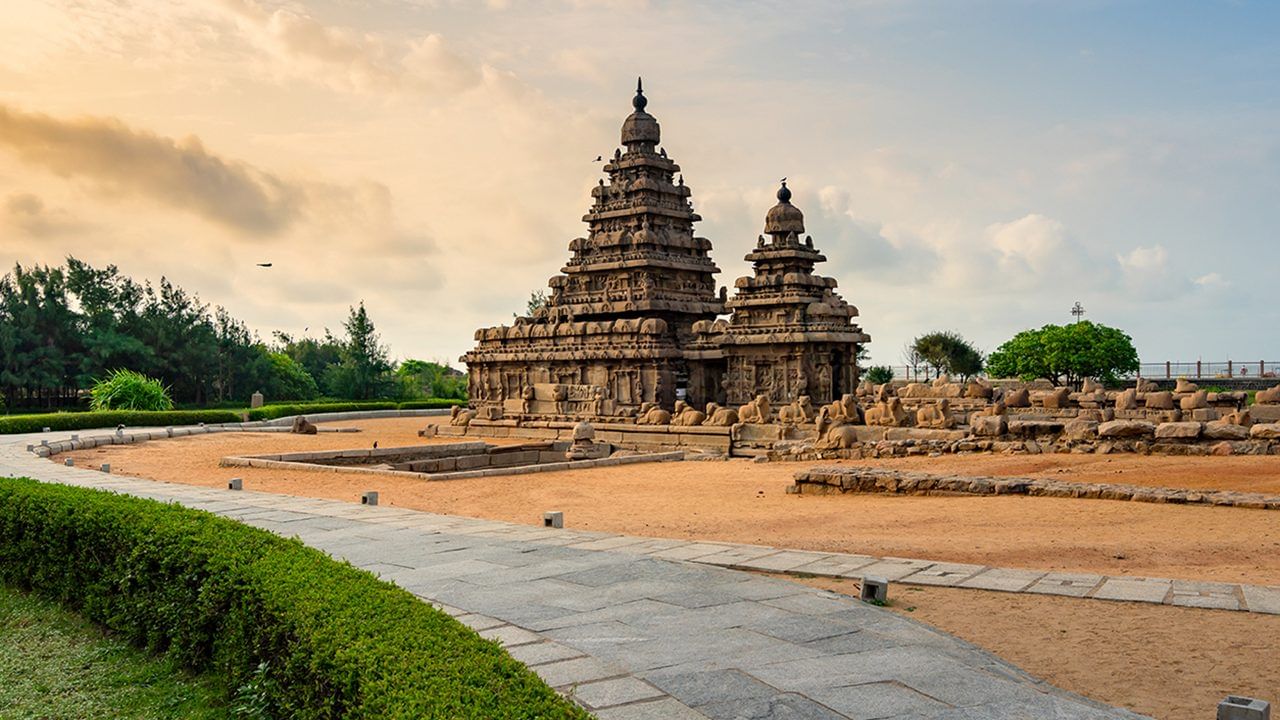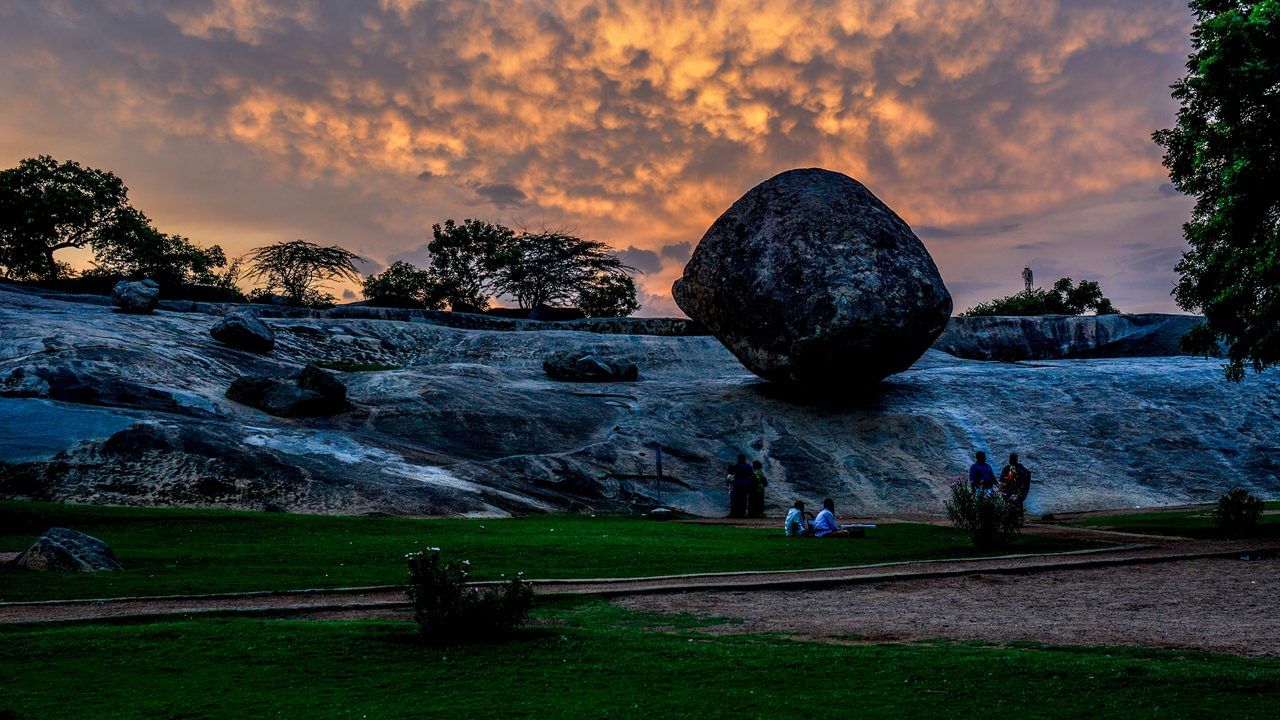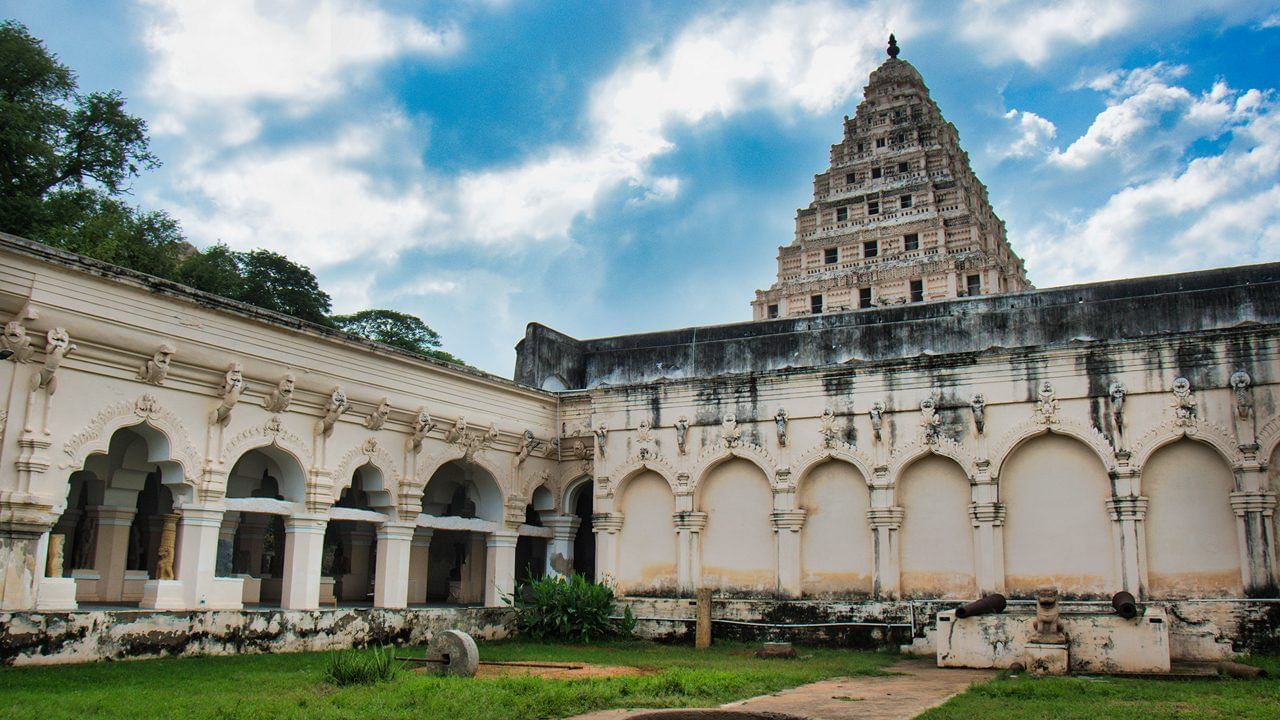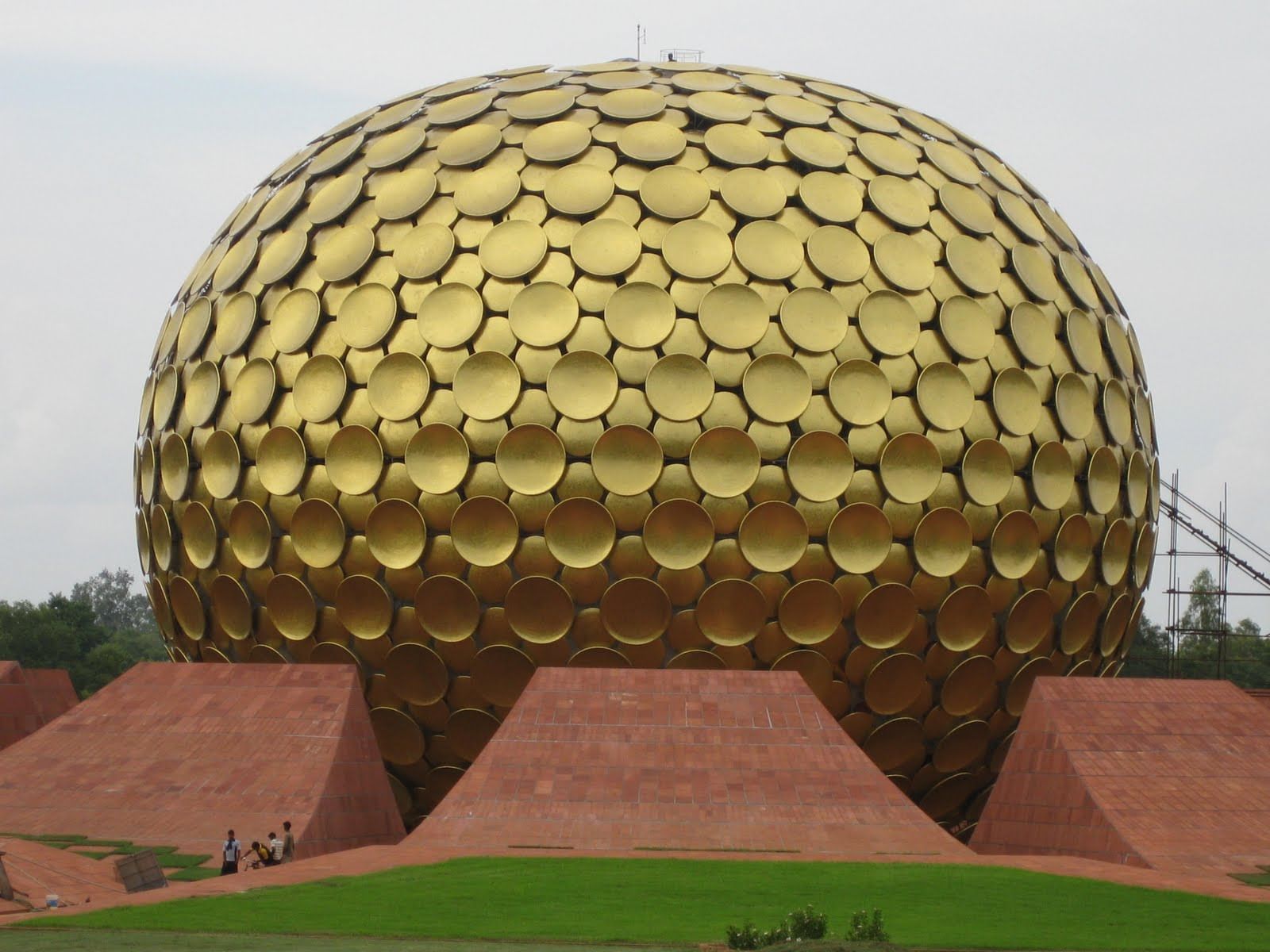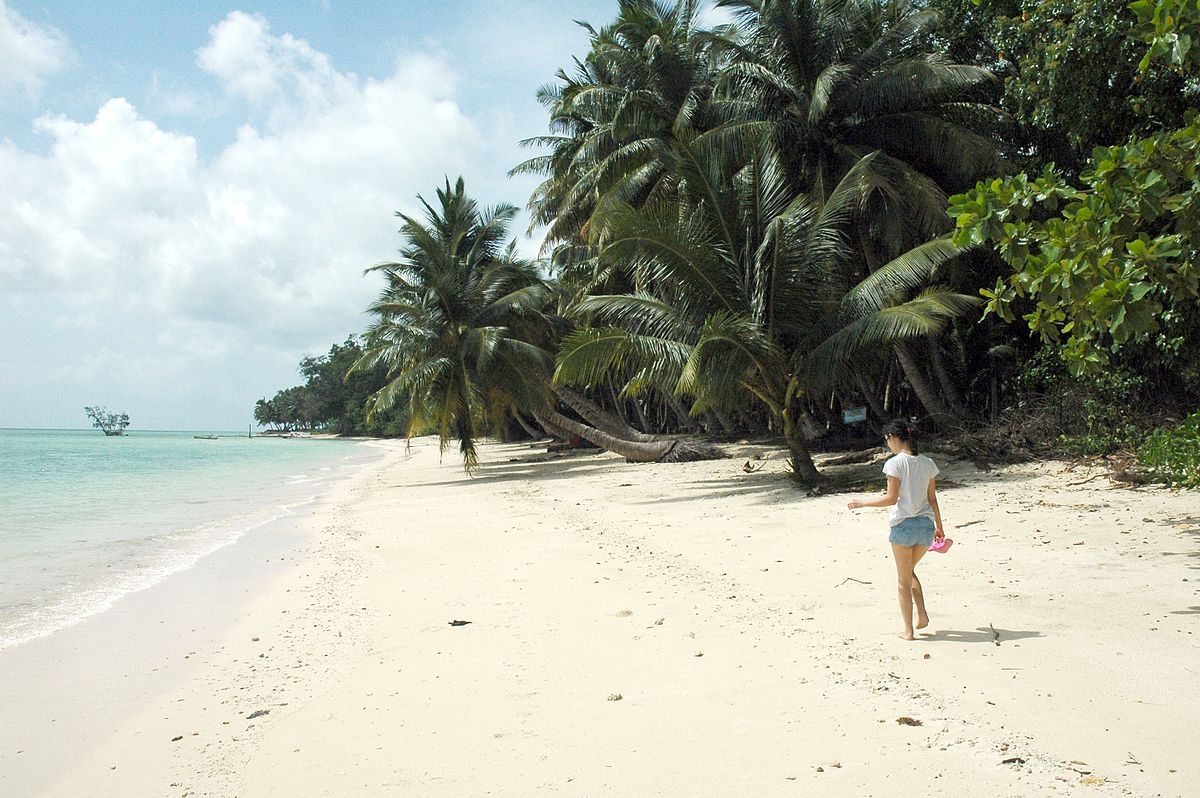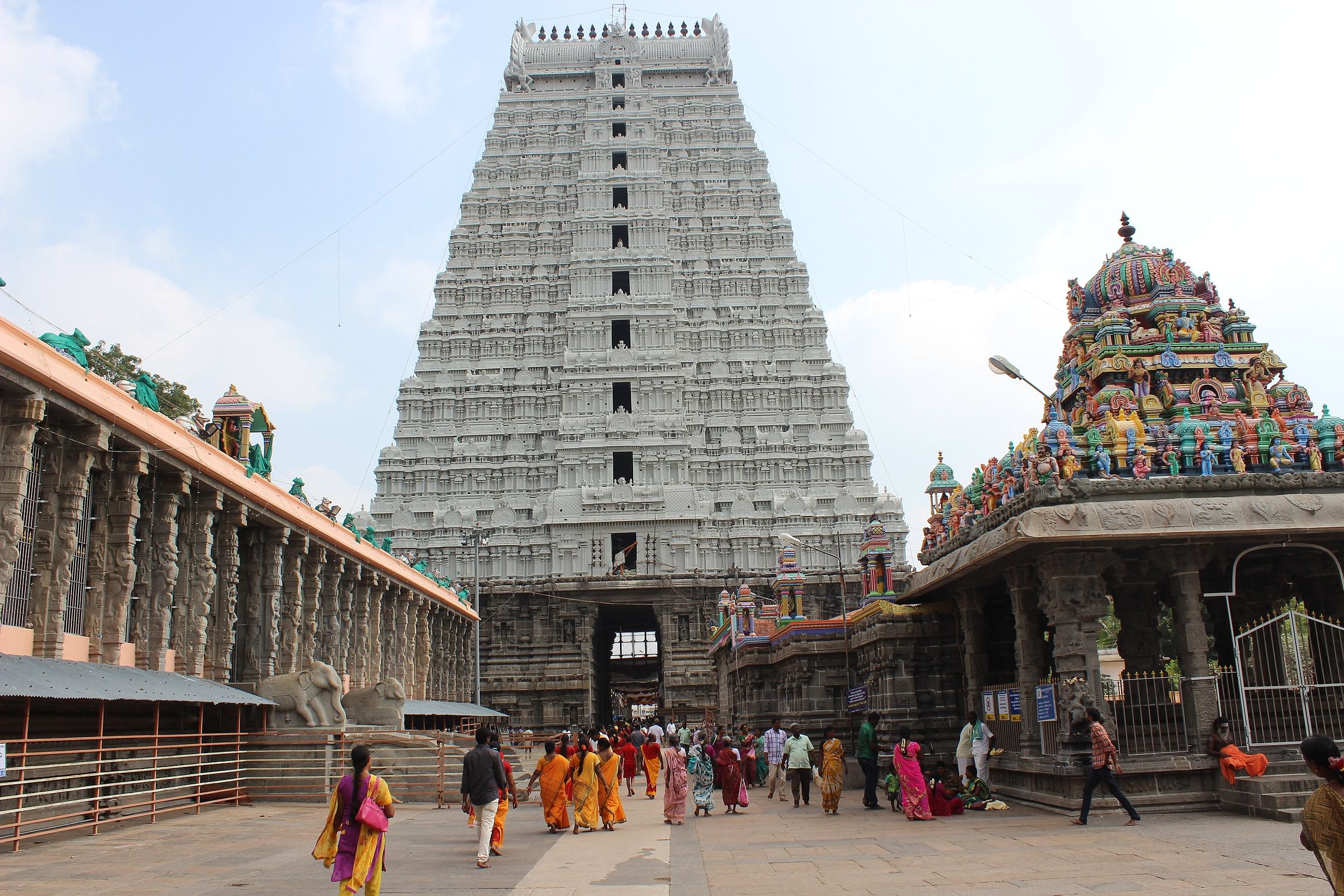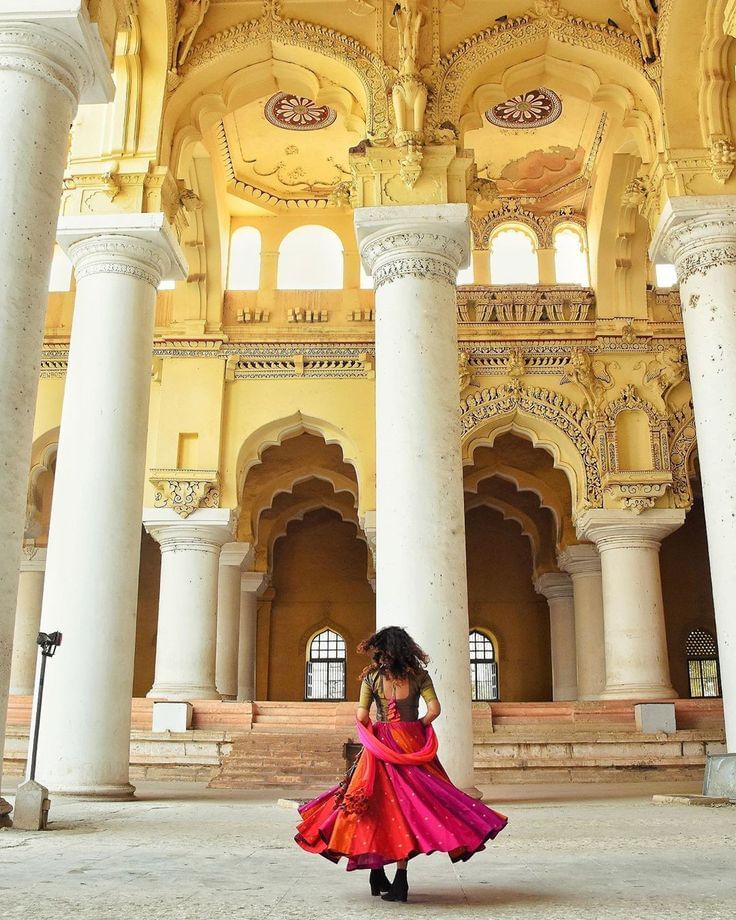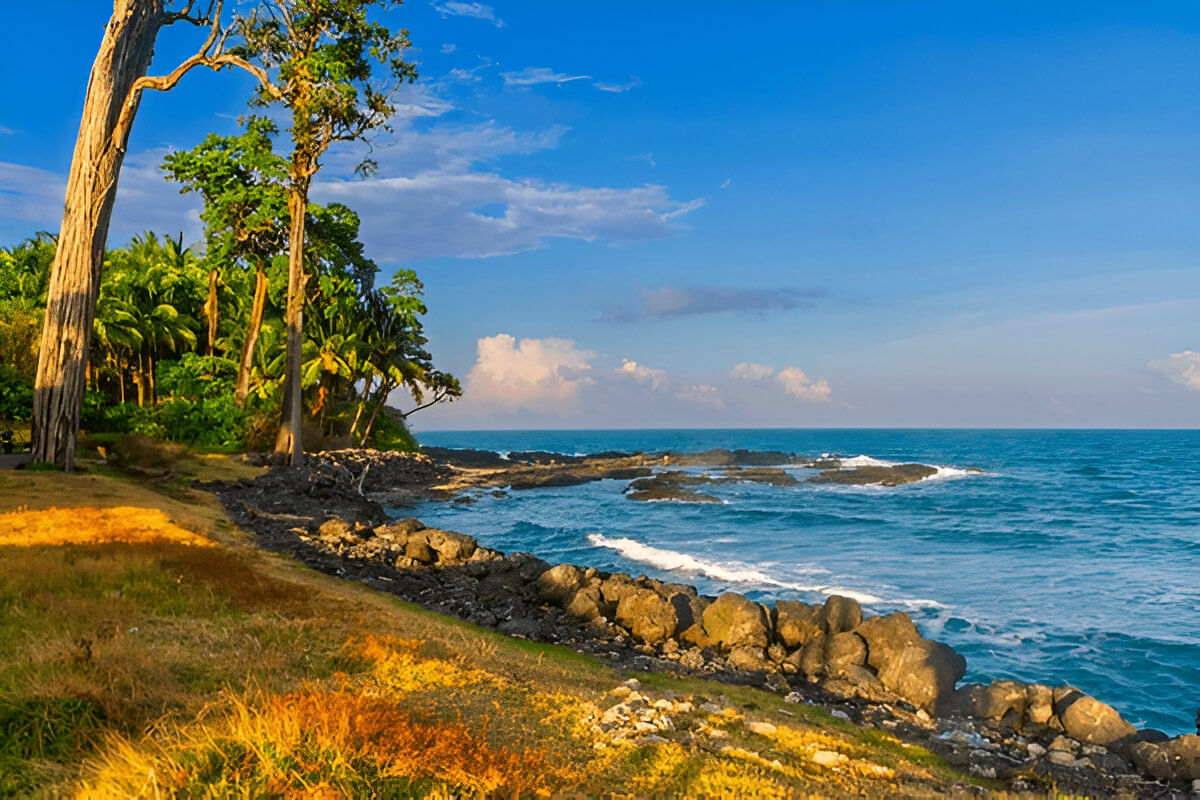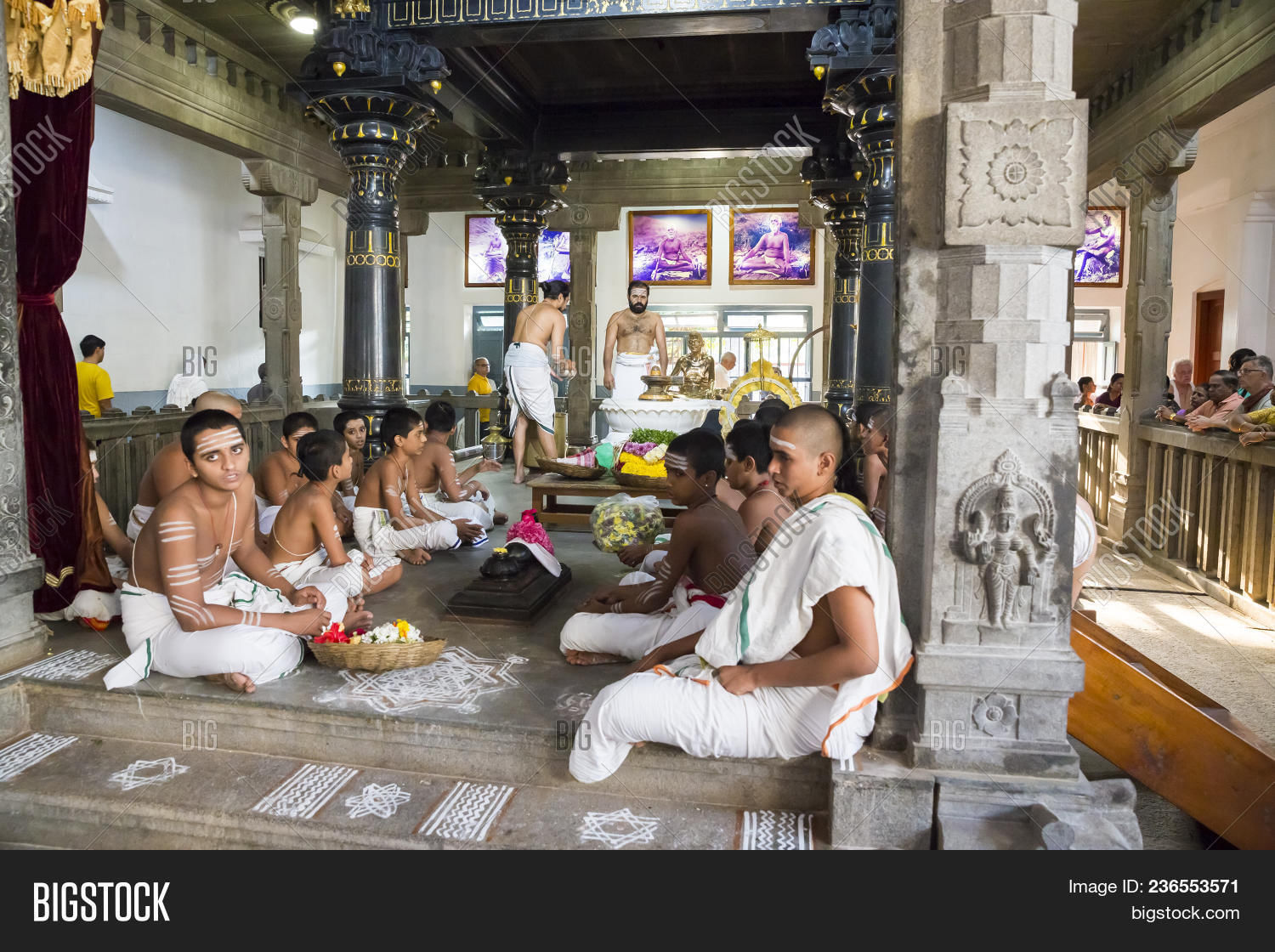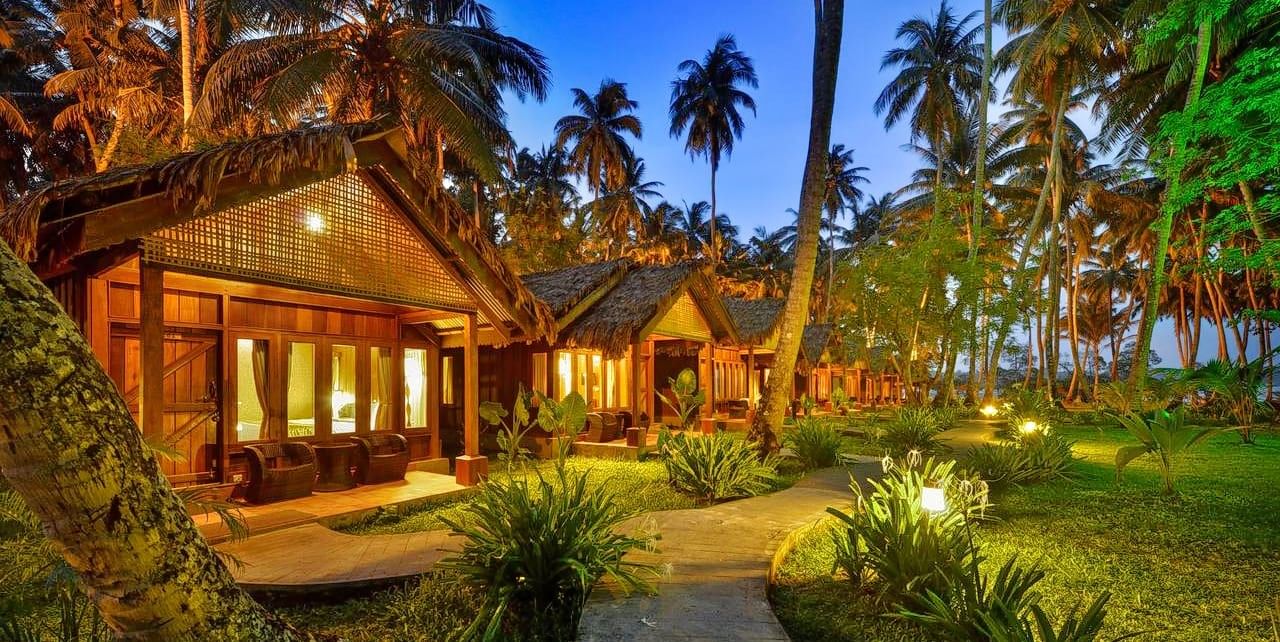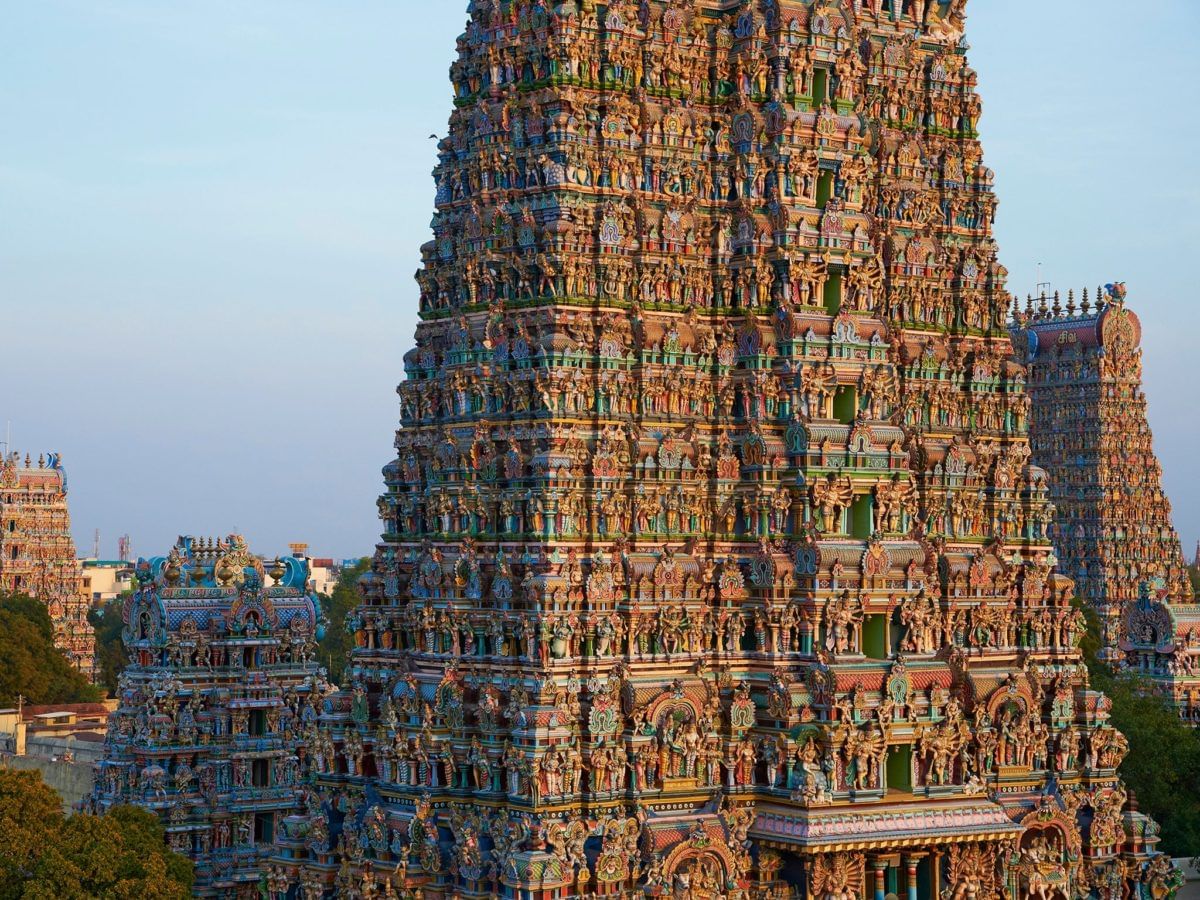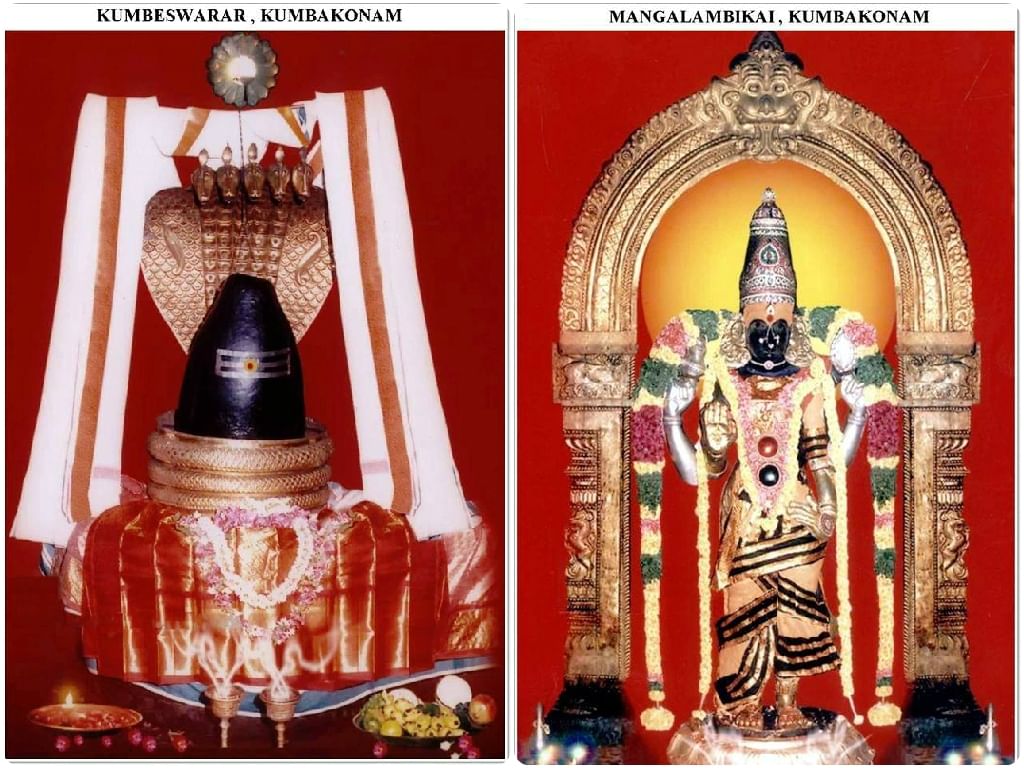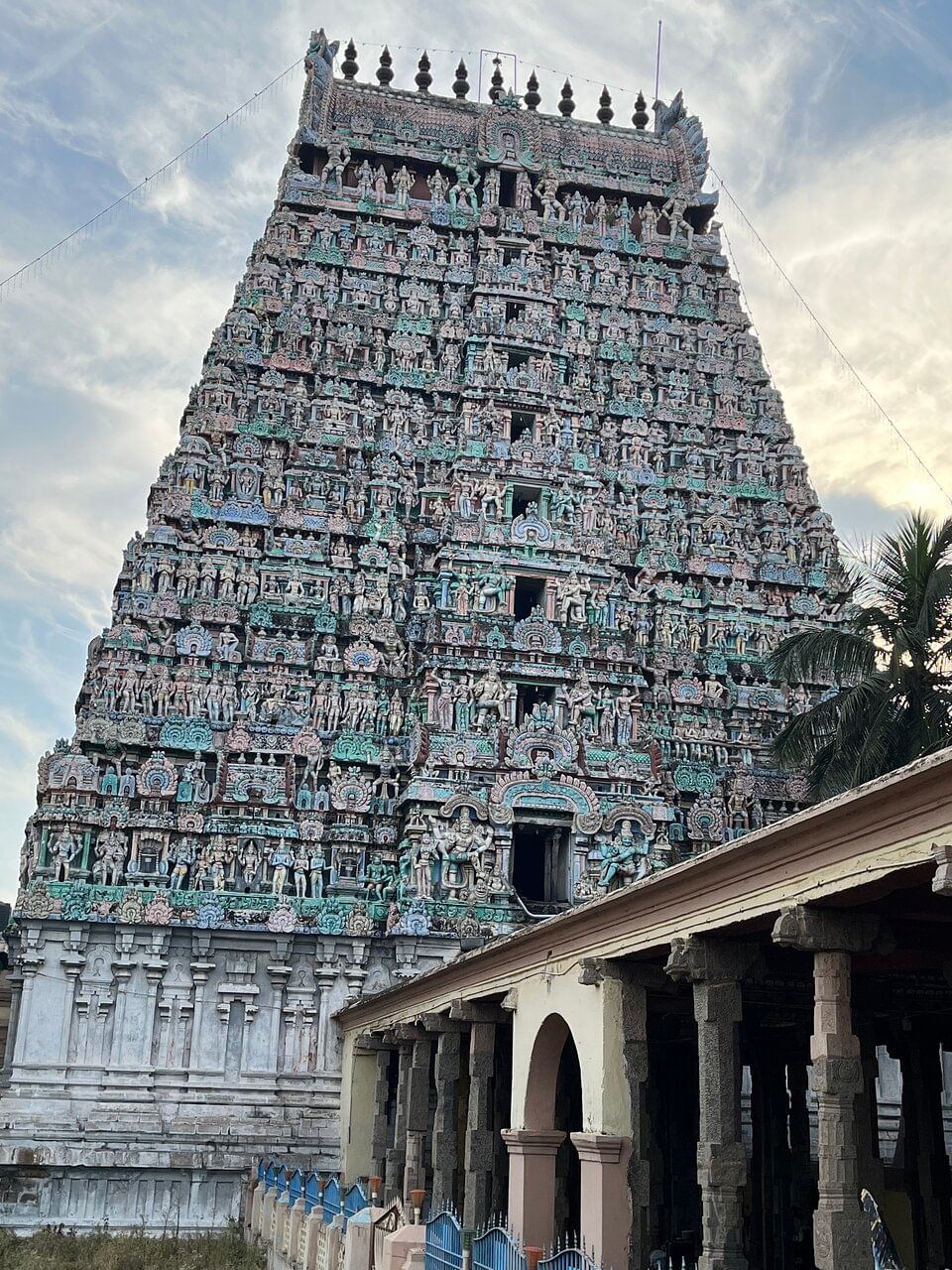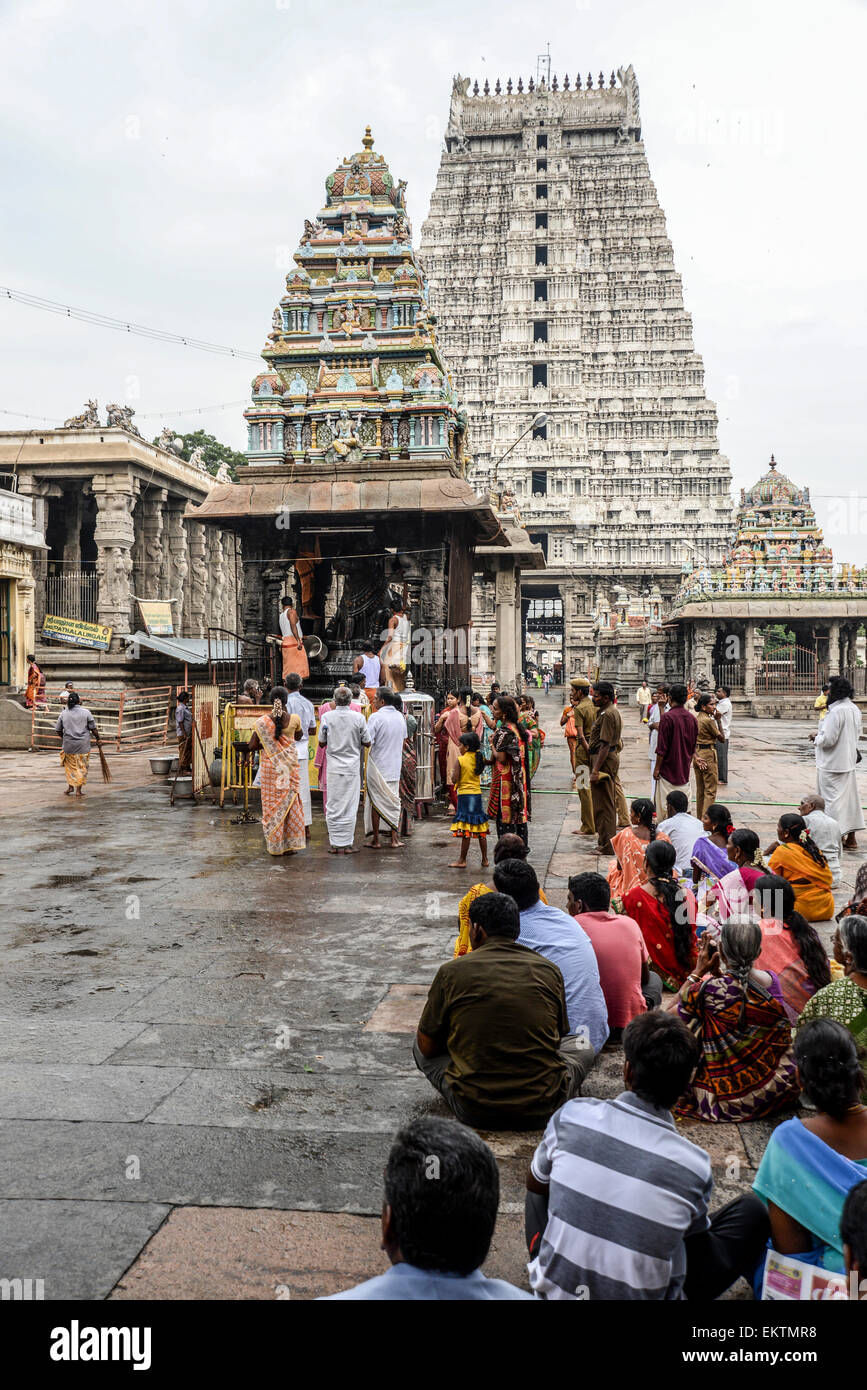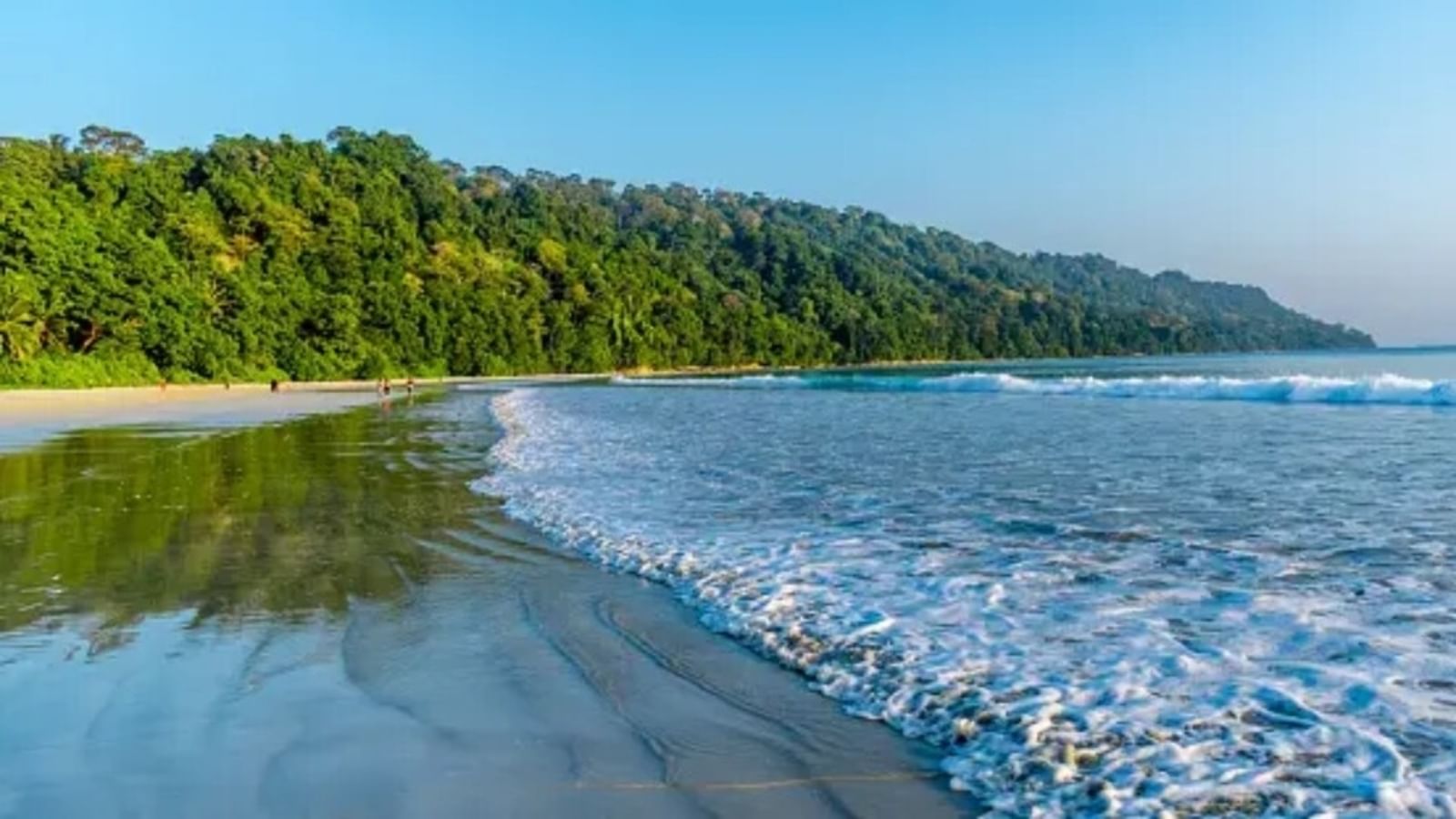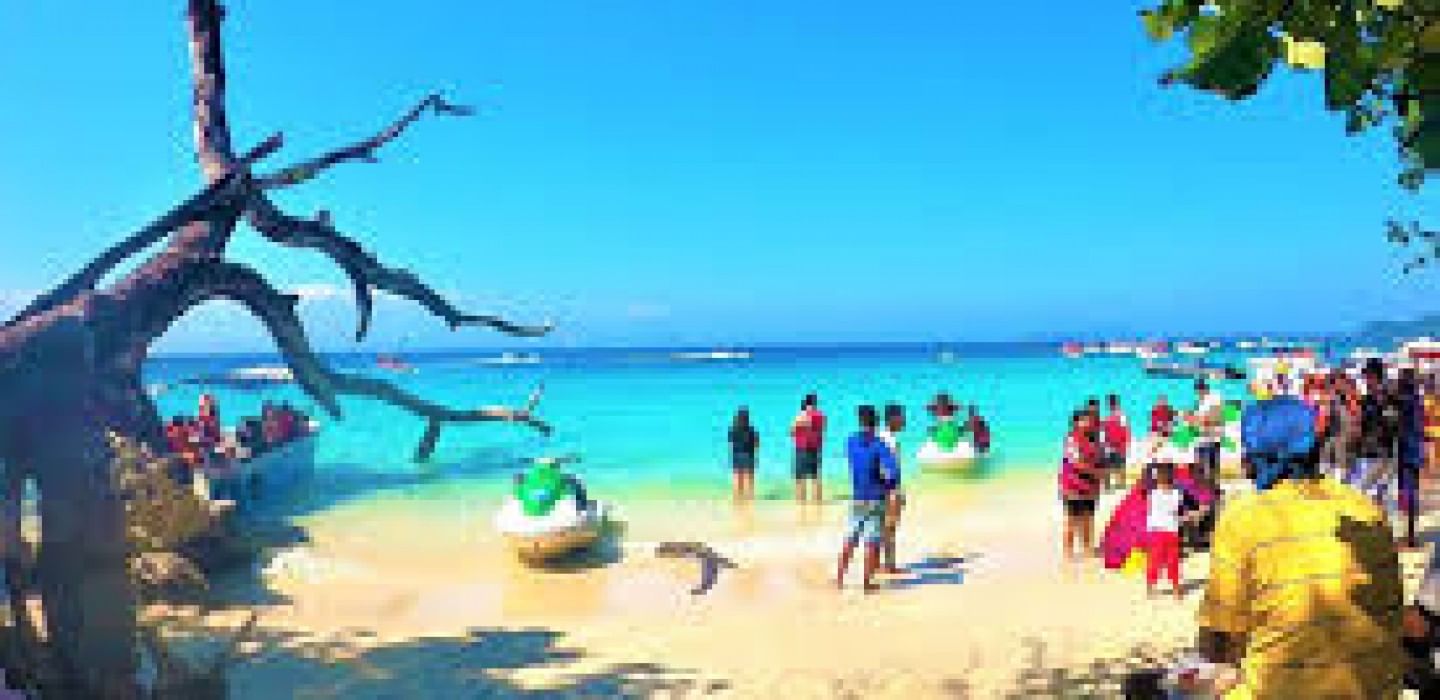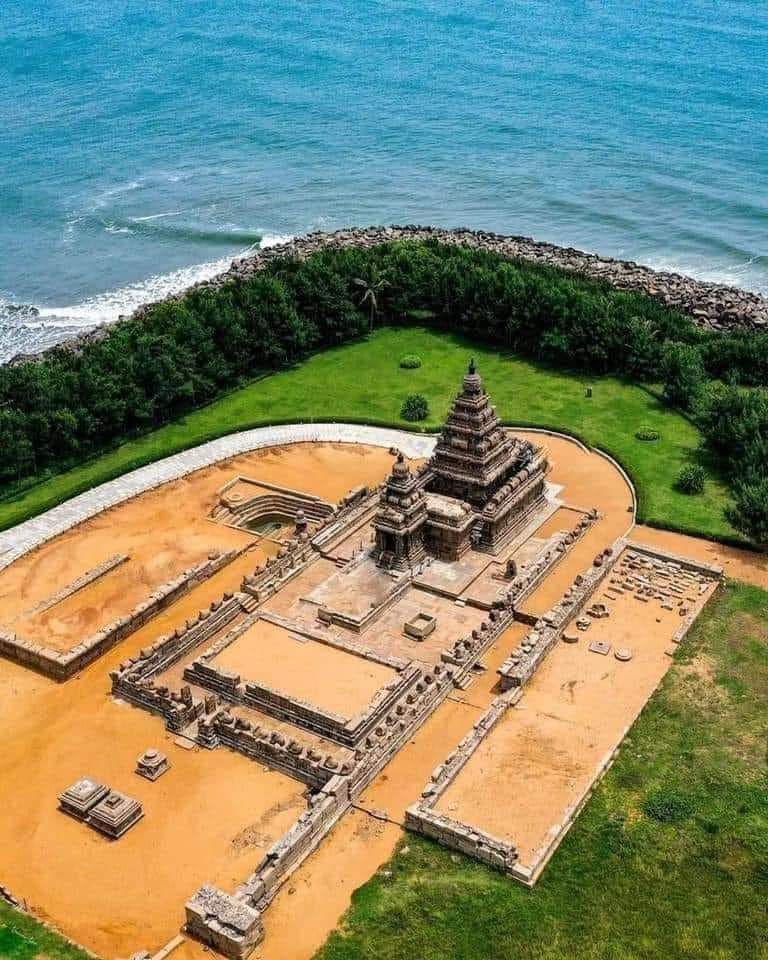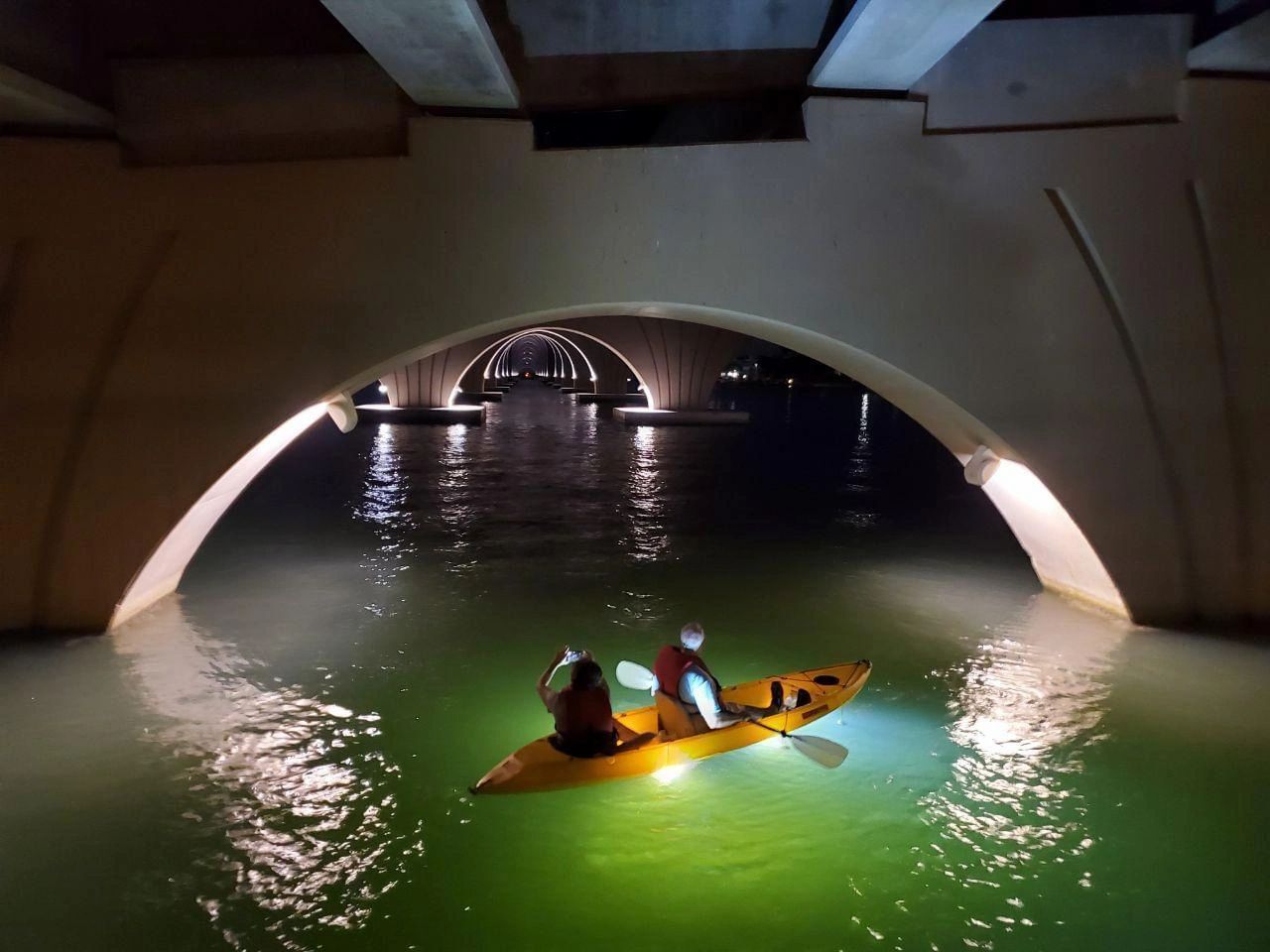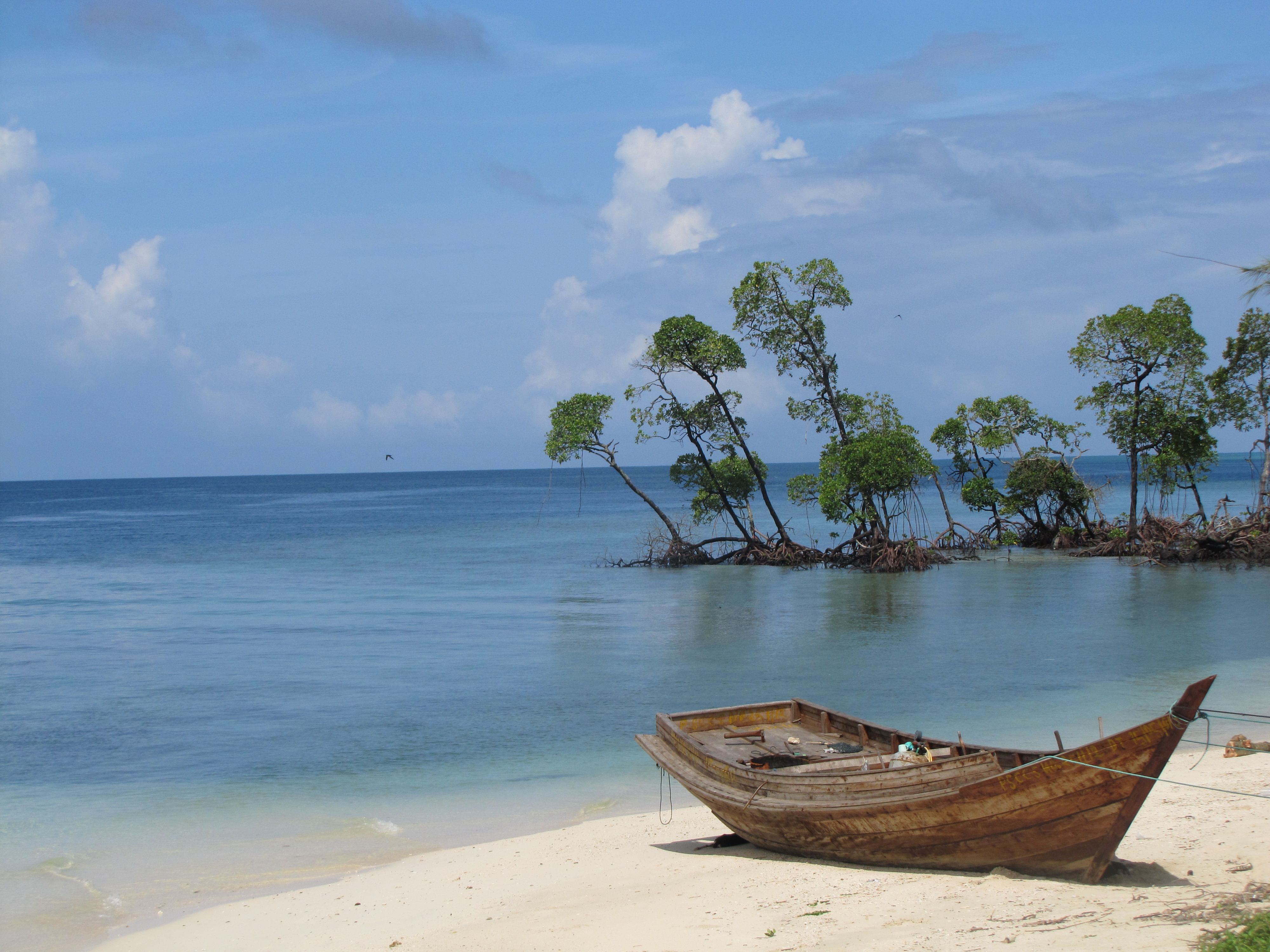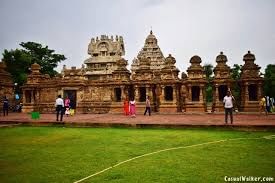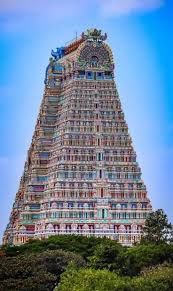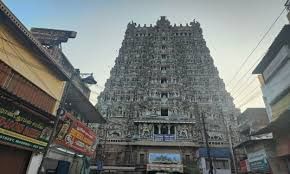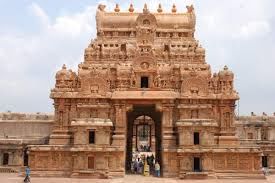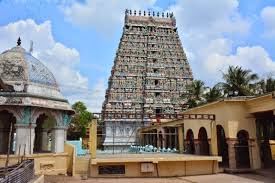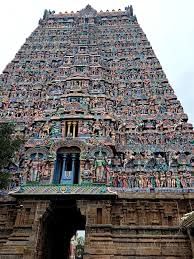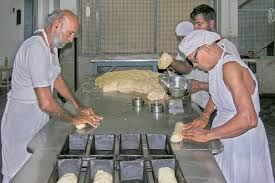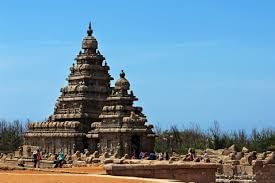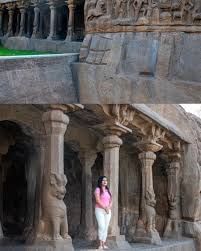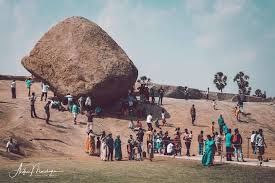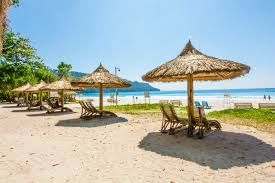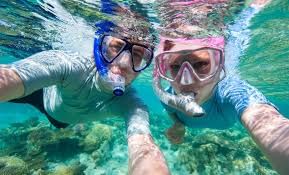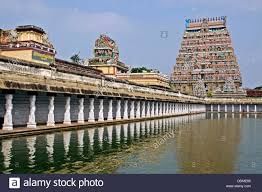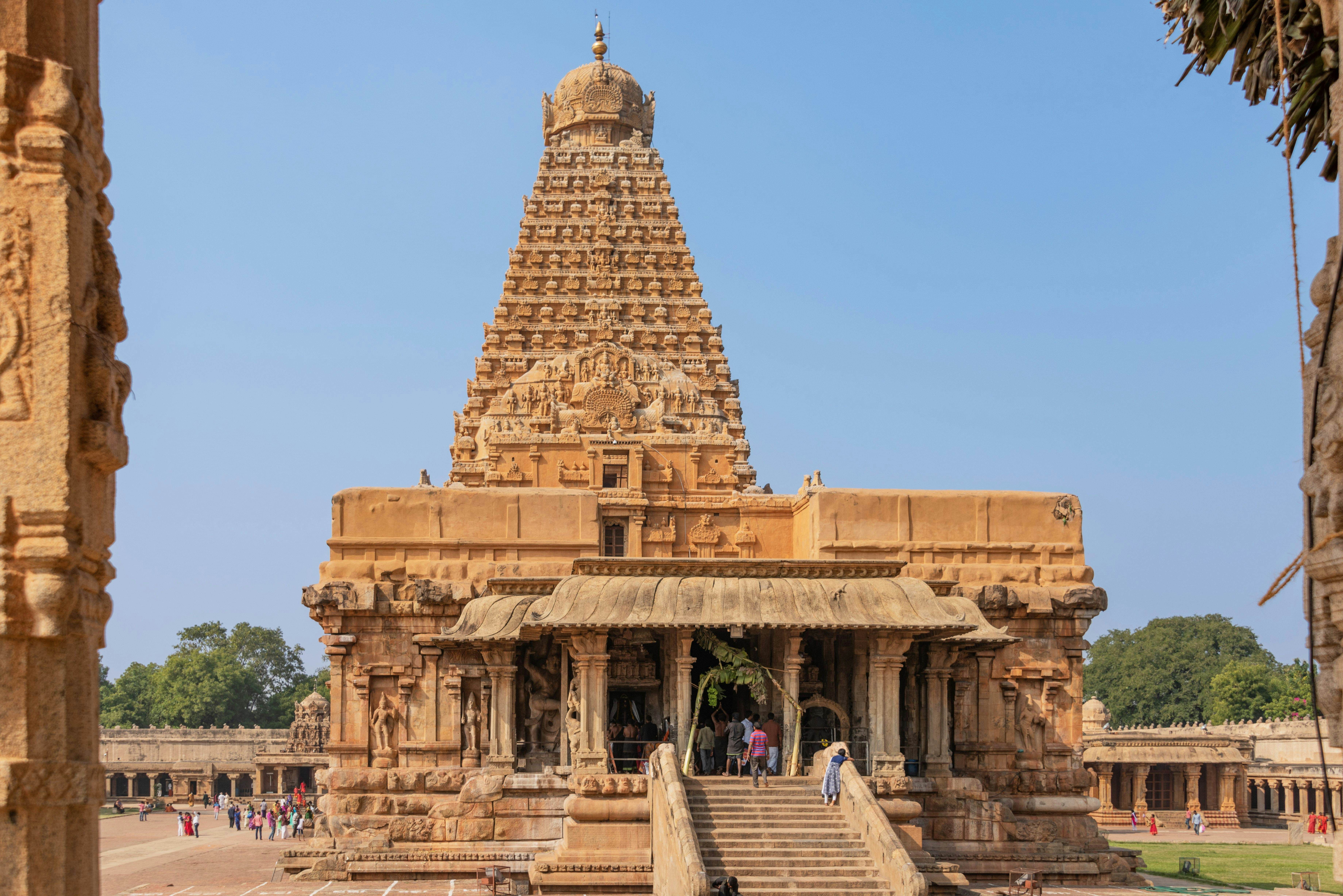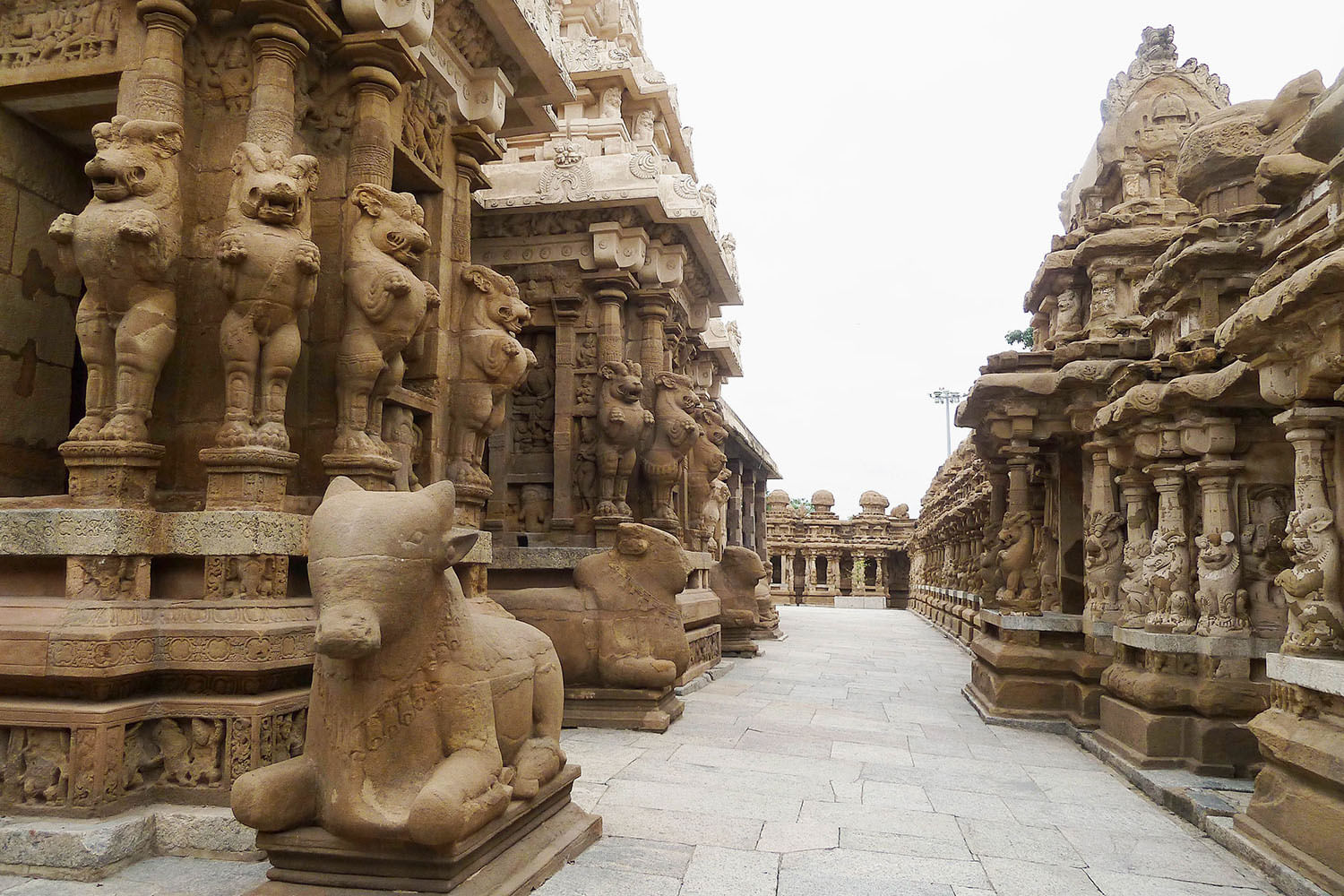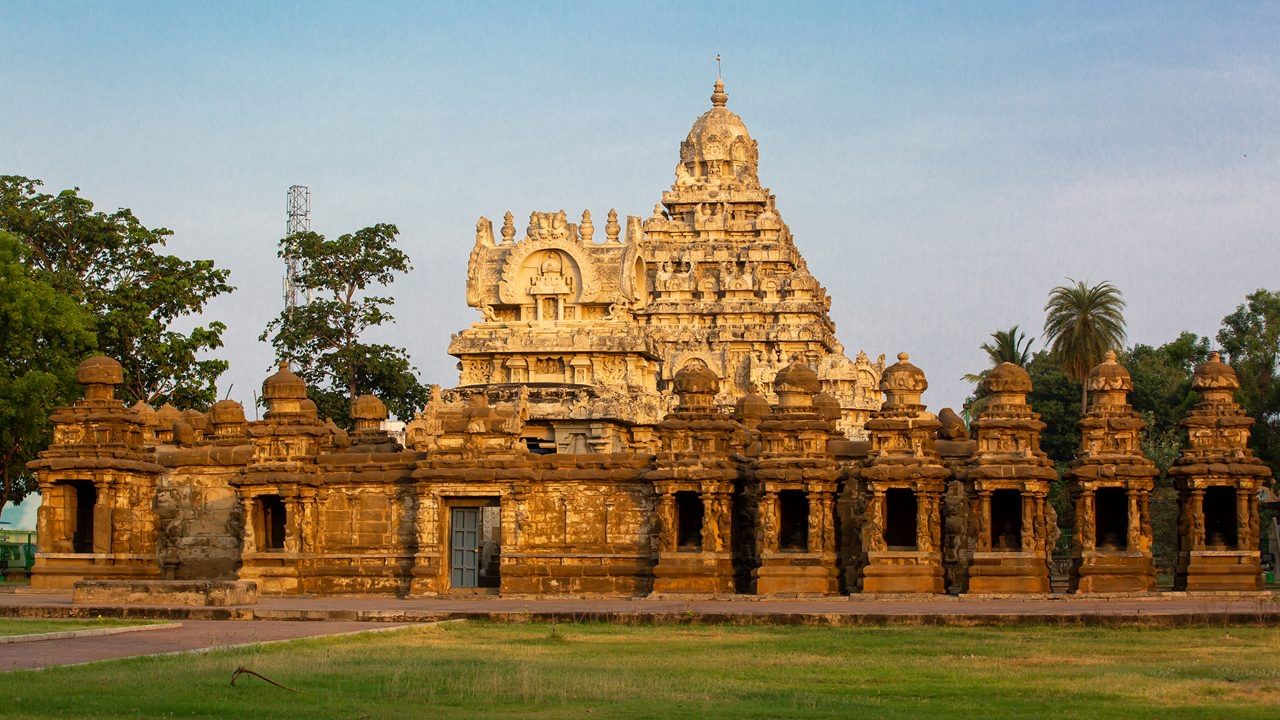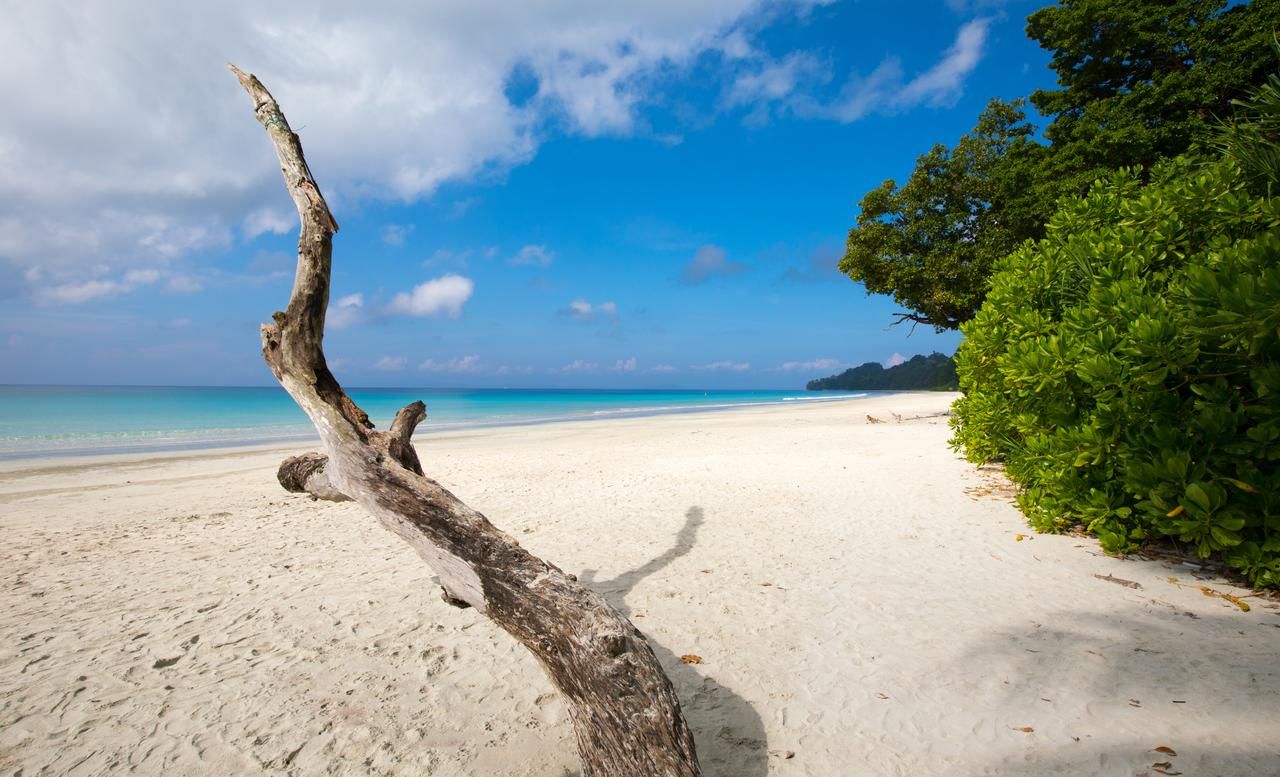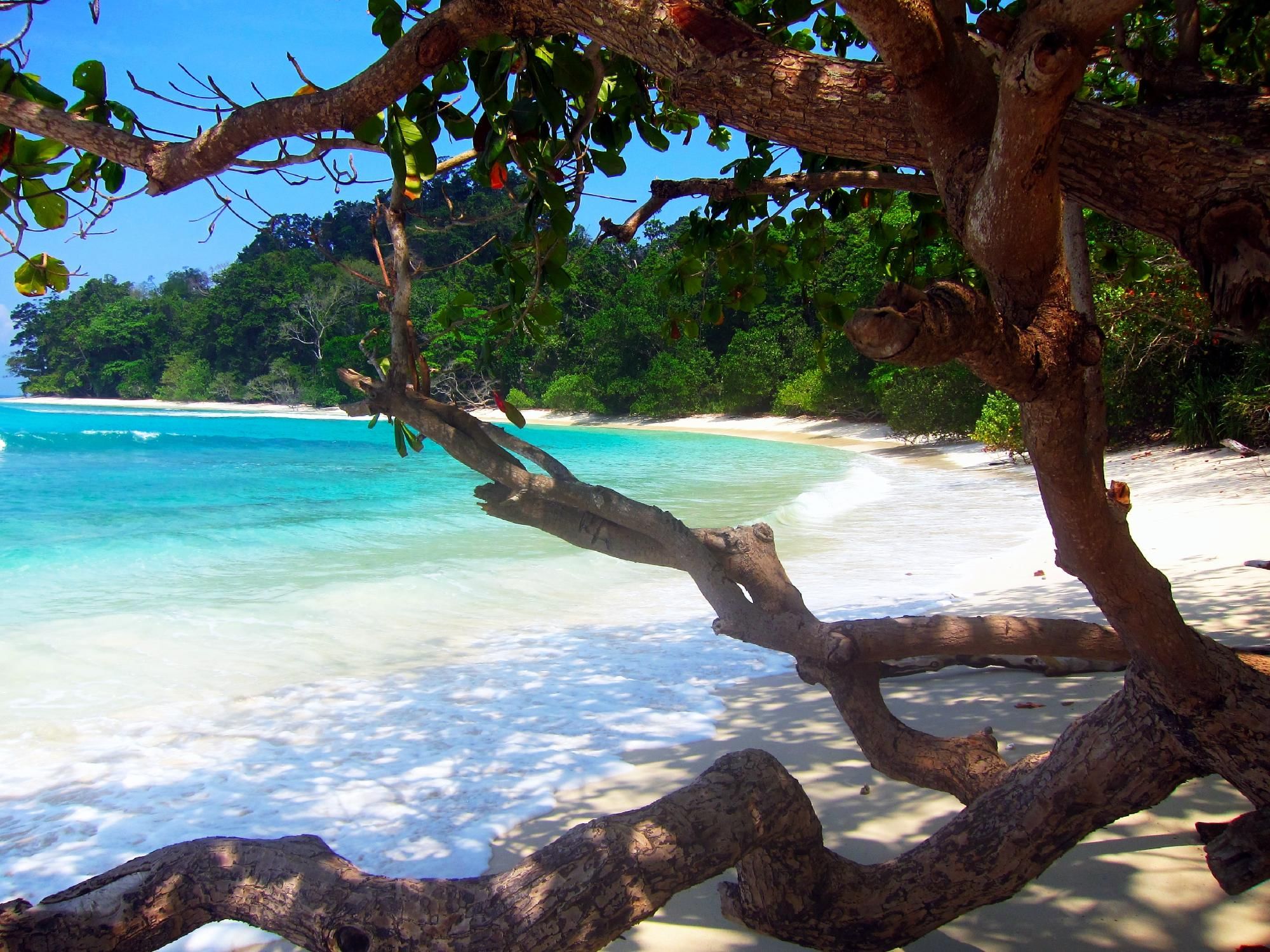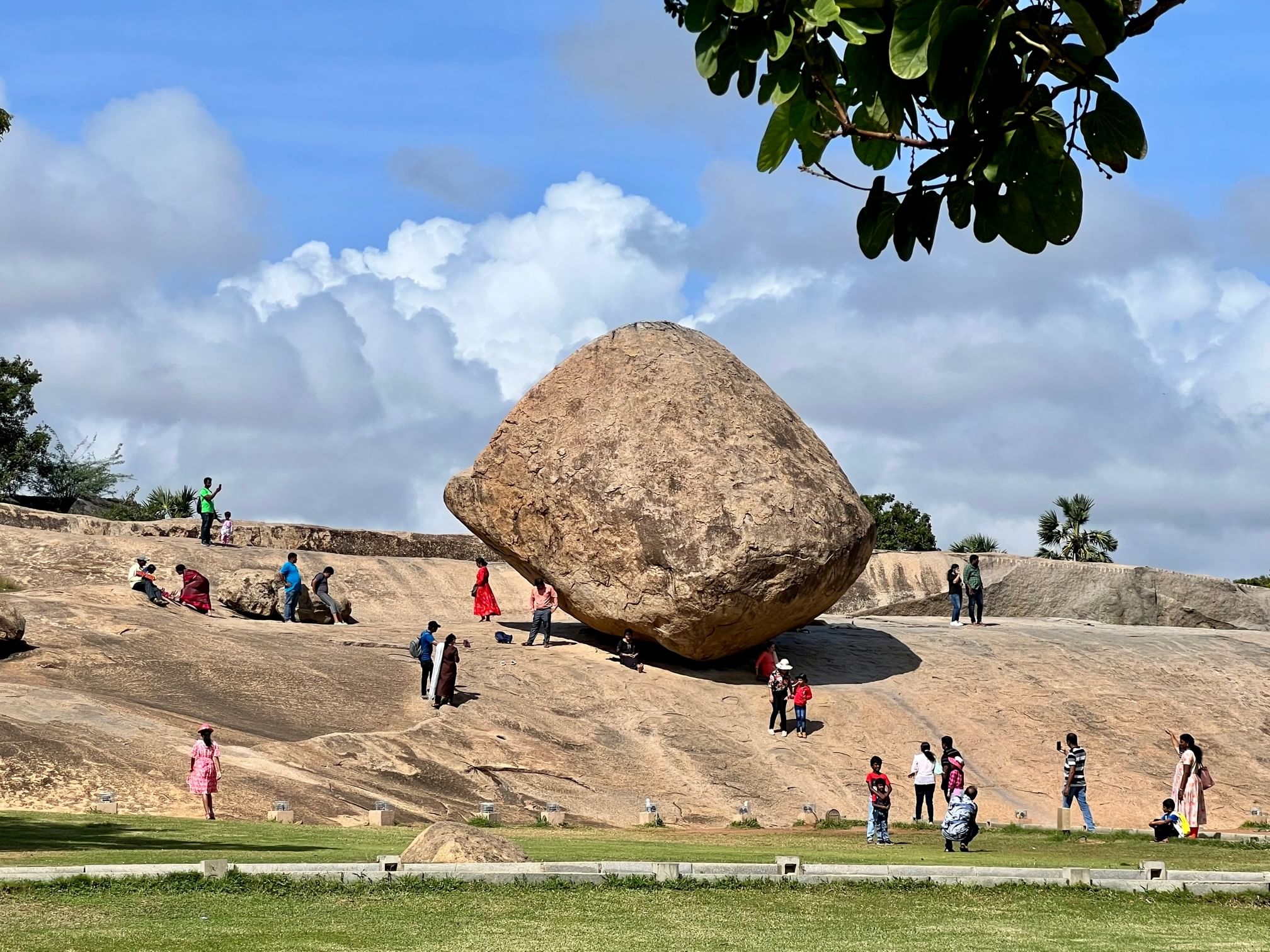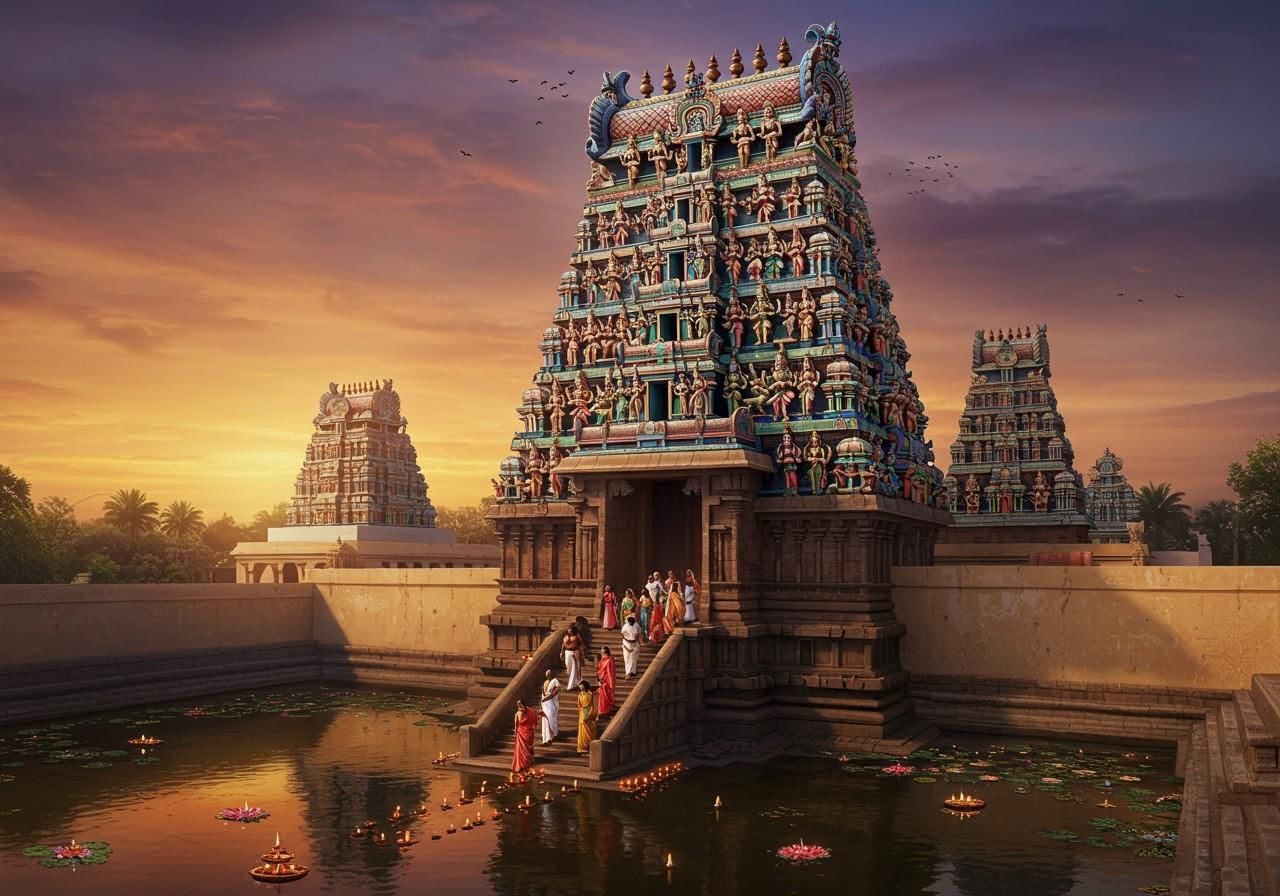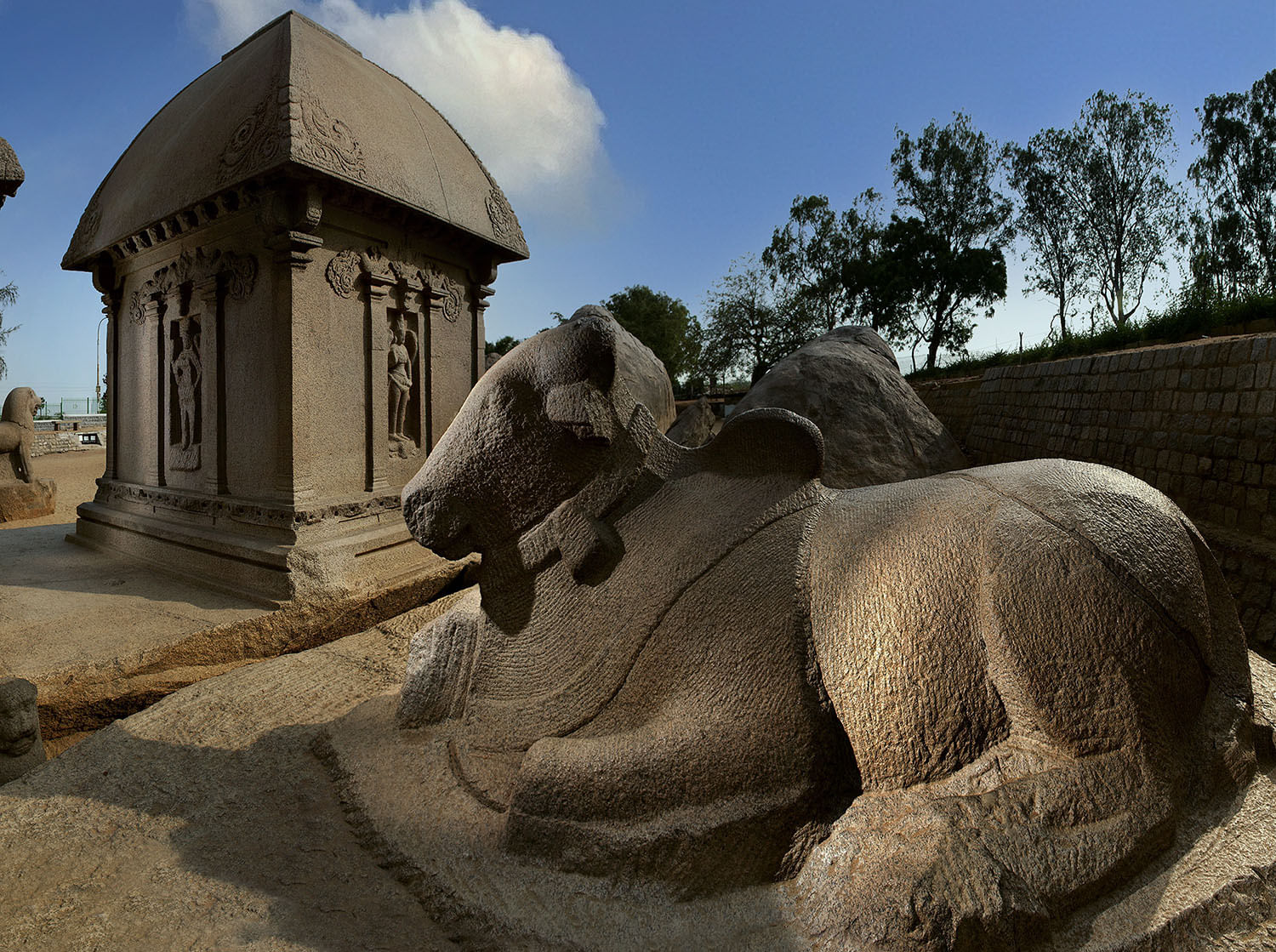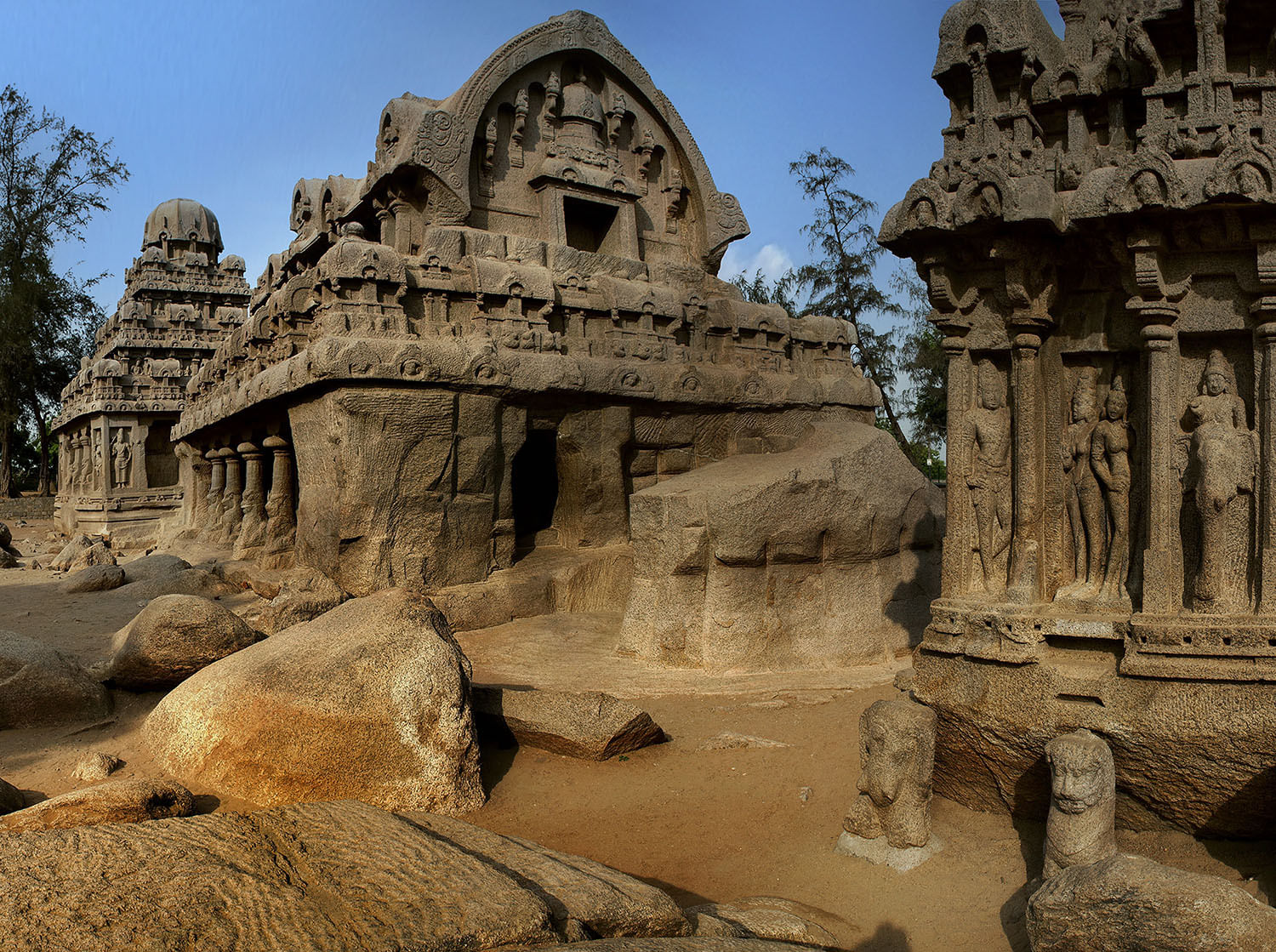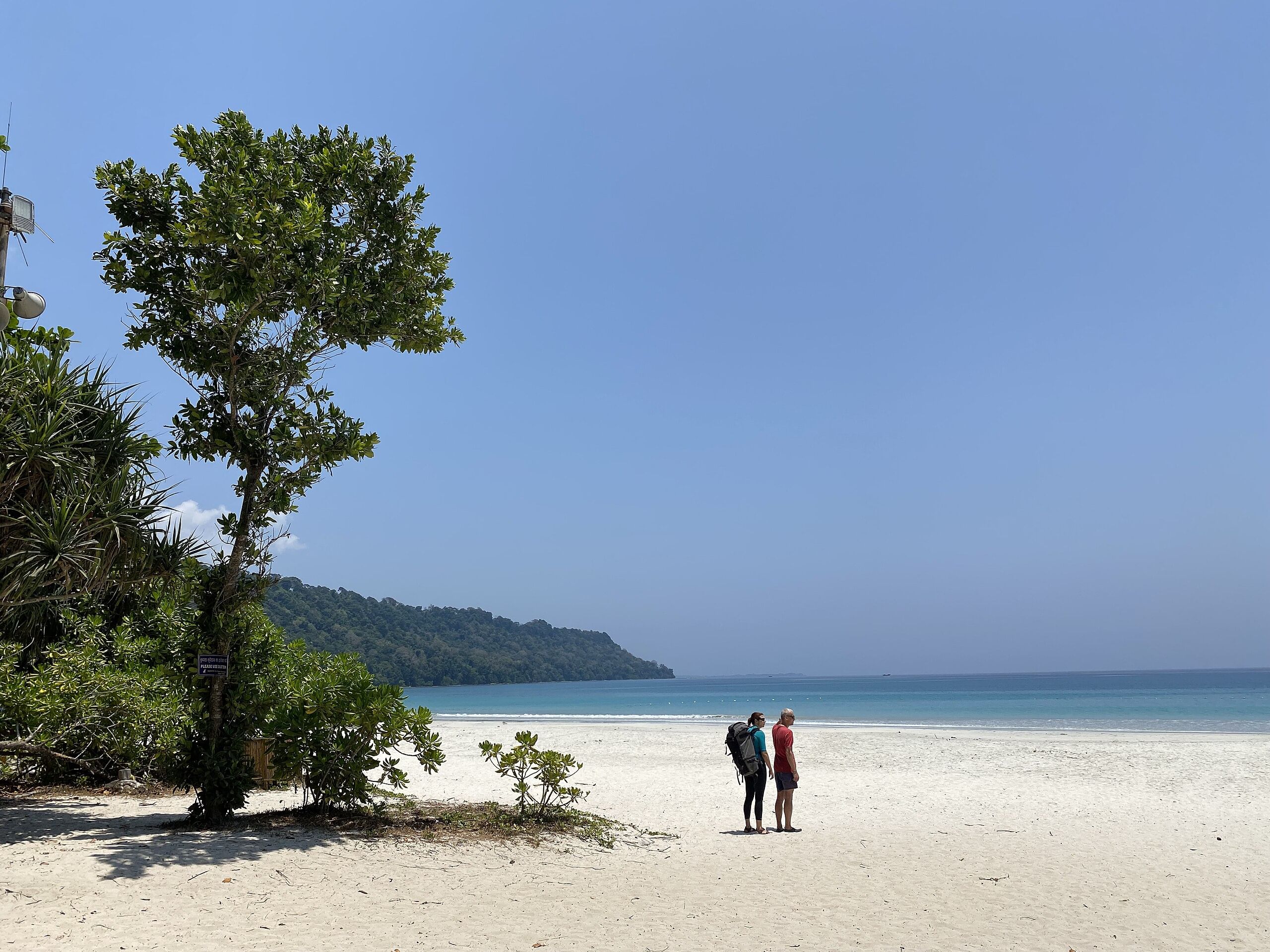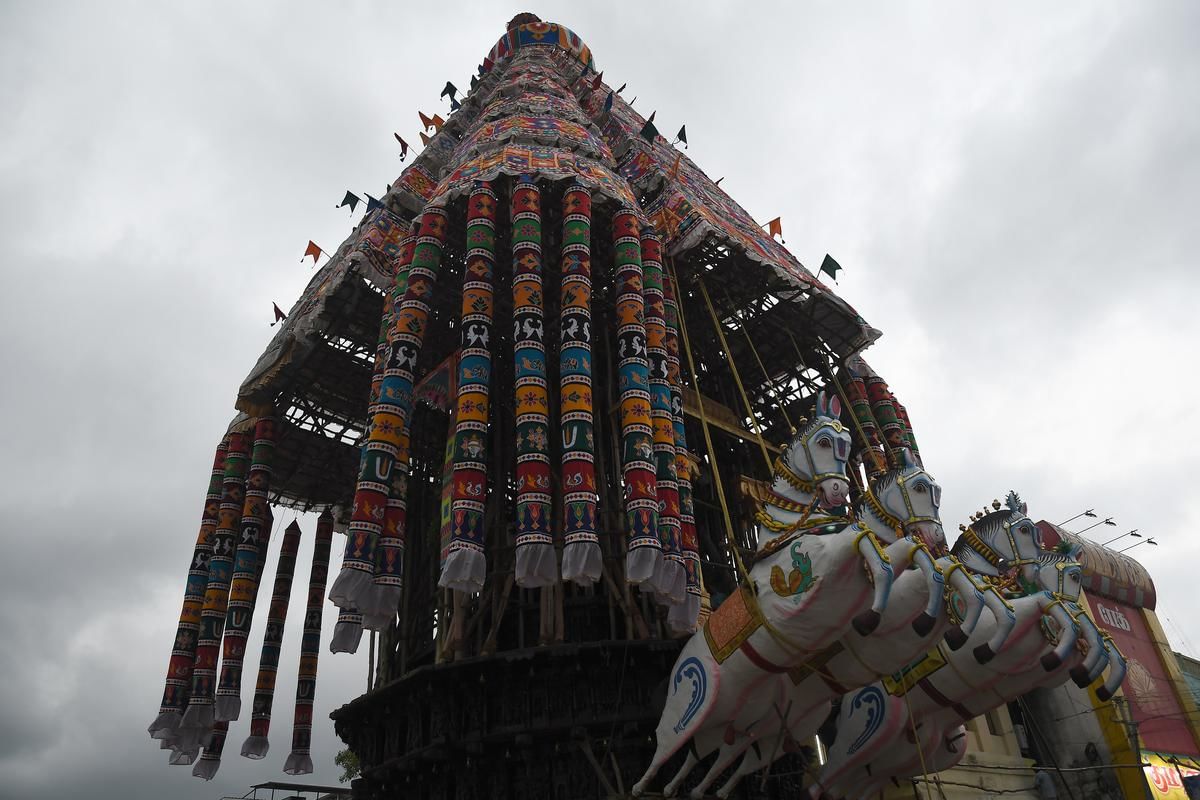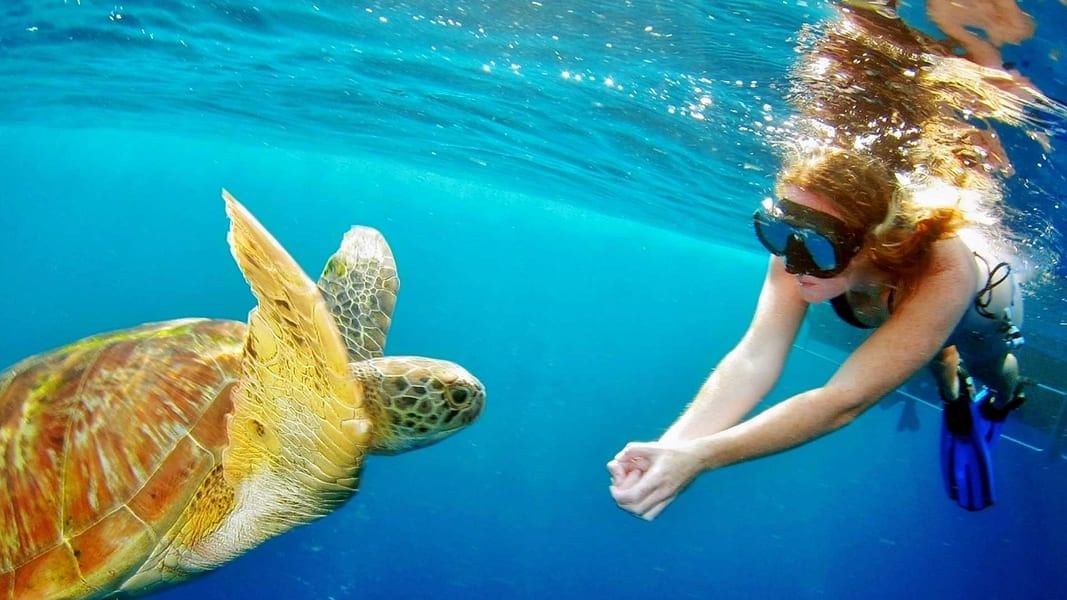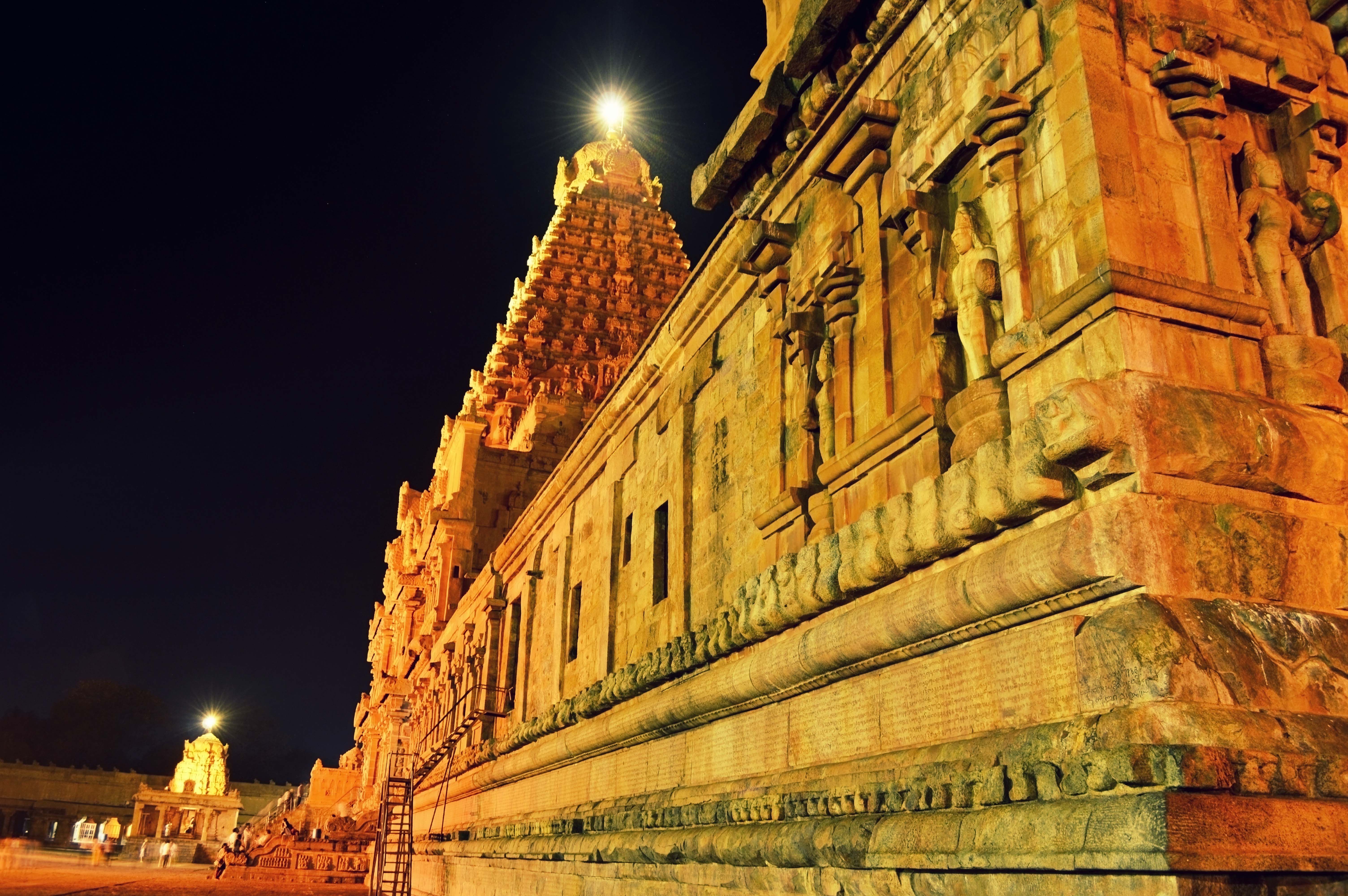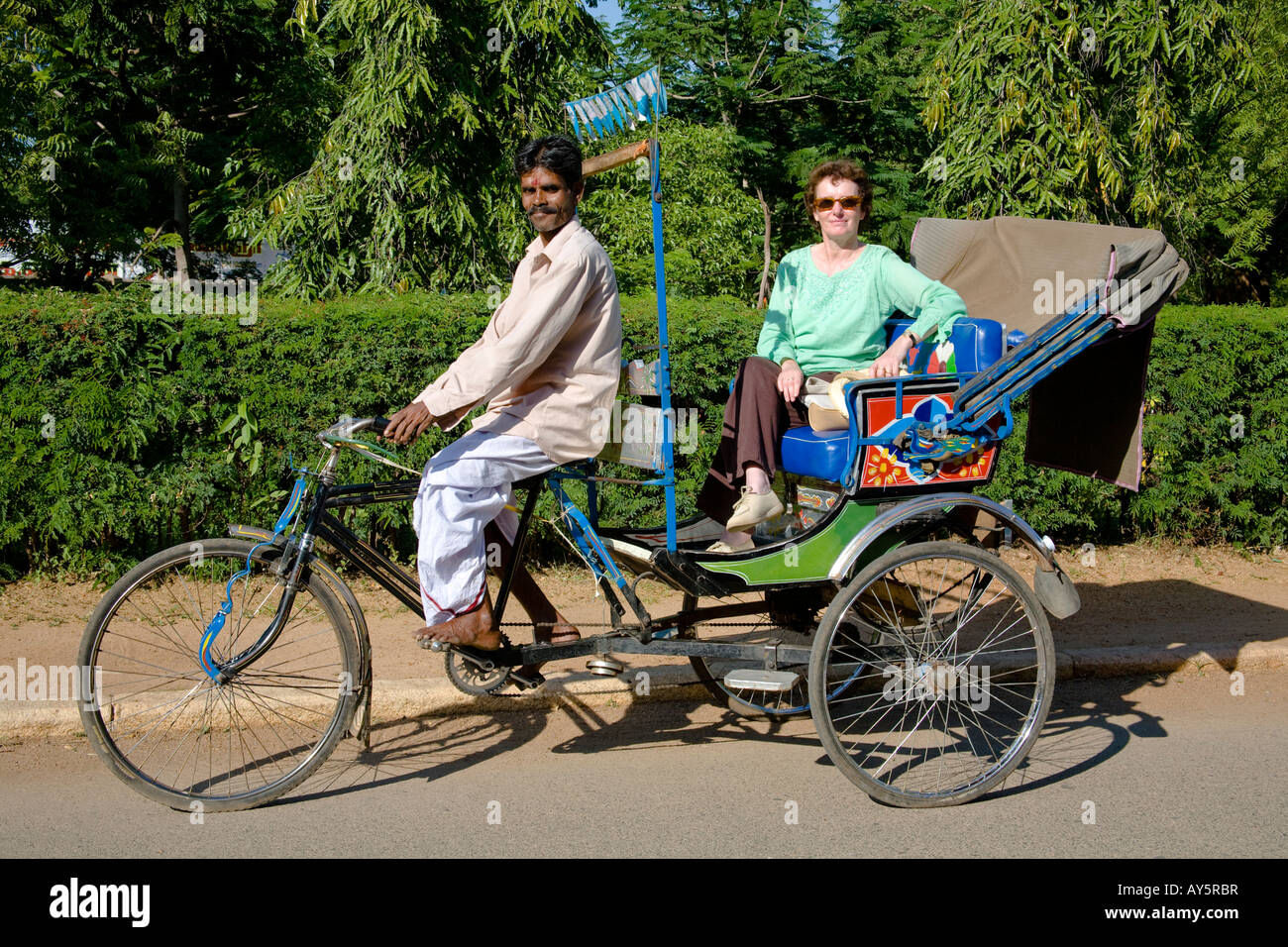Tamil Nadu to Andaman: A Cultural & Coastal Adventure
11 días
Fácil
Explore South India’s rich culture—from Chennai’s coastal charm to the temples of Kanchipuram, Madurai, and Thanjavur. Discover colonial Pondicherry, ancient Mahabalipuram, and unwind on the pristine beaches of Havelock Island in the Andamans.
¿Qué está incluido?
- Accommodation in selected hotels in standard rooms on a Bed & Breakfast basis, or in similar category hotels as per the program (11 nights).
- Transportation by private air-conditioned vehicle with an English-speaking driver.
(Toyota Etios/Similar for 1–2 persons, Maruti Ertiga/Similar for 3 persons, Tempo Traveller for 4–8 persons, and Mini Coach for more than 8 persons). - Cruise transfers between Port Blair and Havelock by sharing ferry, subject to availability.
- Services of professional, government-approved English-speaking tour guides for sightseeing in Tamilnadu as per the itinerary.
- All entrance fees to monuments, temples, and activities mentioned in the itinerary.
- Rickshaw ride in Madurai.
- Bottled water provided daily during travel in the vehicle (2 bottles per person per day).
- Local support and assistance throughout the tour from arrival to departure.
- All applicable government taxes, fees, and handling charges.
Exclusiones
- Any International or Domestic Flights (can be provided upon request at an additional cost).
- Visa & Insurance (Visa assistance and insurance can be arranged upon request at an additional cost).
- Meals unless specified in the itinerary.
- Tips to tour guides, drivers, etc.
- Beverages, personal expenses, and any other services not specified above.
tenga en cuenta
- Pasaporte obligatorio
- Asientos para bebés disponibles
Important Notes
Mandatory Legal Notice
Please be reminded that engaging in or facilitating child exploitation and trafficking, including acts committed abroad, is considered a serious criminal offense and is punishable under international laws.
Passport
A passport valid for at least six months beyond your intended departure date from India is required. It is advisable to carry photocopies of your passport identification page and visa in case of loss or theft.
Indian Visa Requirements
A valid visa is required for entry into India. It is recommended that travelers obtain a double or multiple-entry visa if planning to leave and re-enter the country. During your flight to India, you will be provided with an arrival form which must be completed and presented at immigration. The customs portion will be returned to you and must be submitted at the customs checkpoint upon exit.
Domestic Flights
Domestic and regional flights (e.g., India–Nepal) not included in your international airfare will be arranged and provided to you upon arrival by your tour escort or local representative. Please note: internal flights in India and to/from neighboring countries are often subject to delays, cancellations, or unplanned stopovers. Arrive at the airport at least 2 hours prior to departure. In case of overbooking or cancellation, the airline will attempt to rebook you or issue a refund, but any replacement tickets may be purchased locally at potentially different rates.
Baggage Allowance
Airlines in India may charge extra for luggage exceeding the permitted allowance. Excess baggage fees typically range between USD 4 to 8 per kg.
Local Guides and Tour Escort
Throughout your journey, a tour escort (for group tours) or local guides (for individual travelers) will assist with logistics and sightseeing. In many cities, especially in South and Central India, or remote areas of Rajasthan, guides who speak your native language may not be available, and English-speaking guides will be provided instead.
Security and Valuables
Please do not leave valuables (e.g., passports, phones) unattended at any time. Travel providers are not responsible for lost or stolen items. It is also advisable to keep a list of emergency banking contacts in case of card loss.
Tipping
Tipping is customary in India. While discretionary, a 10% tip is common in restaurants, and tips for drivers and guides are also appreciated.
E-Cigarette Policy
Bringing electronic cigarettes into India is prohibited. They are not allowed at customs or within domestic airports.
Travel Flexibility
All tours are designed with a degree of flexibility to adapt to weather conditions or unforeseen local situations. Travelers are advised to maintain a flexible and adaptive attitude throughout the journey.
Hotel Check-Out Policy
Hotel rooms are typically available until 12:00 noon on the day of departure. Since day-use services are not commonly available, retaining your room beyond this time may require paying for an additional night.
Online Check-in
Where possible, use online check-in options available via airline websites or airport kiosks to save time.
Weather
The best time to travel is mid-November to March, with pleasant temperatures and low rainfall. Daytime highs range from 27°C to 30°C, and nighttime lows from 16°C to 22°C. March marks the start of warmer weather, with temperatures rising up to 38°C. The monsoon season (June–October) primarily affects the southwestern regions, while October–early November sees northeast monsoons in the southeast.
Clothing
Dress according to the climate and regional customs. In South India, lightweight clothing is suitable year-round, but long sleeves and trousers are recommended to protect against insects. For Northern and desert regions, pack warmer clothing for winter. Modest attire is advised, especially during temple visits.
Shopping
India offers a rich variety of traditional handicrafts, from silk textiles and brocades to ceramics and hand-painted items. Bargaining is common in markets. Avoid purchasing items that harm the environment or endanger wildlife.
Food & Beverages
Drink only bottled or boiled water—readily available in most hotels and restaurants. Avoid tap water and ice. Consume only well-cooked food, and steer clear of raw vegetables and unpeeled fruits.
Medical Assistance
A wide range of medical treatments is available in India. However, advanced healthcare facilities are primarily concentrated in major cities. Bring your own medications for gastrointestinal issues and any prescription drugs that may not be easily found locally.
Cultural Etiquette
Before entering temples, mosques, or gurdwaras, remove your shoes (socks are usually permitted). Leather goods may be frowned upon in certain temples. Dress modestly and avoid tight or revealing clothing. The traditional Indian greeting, “Namaste”, with joined palms, is widely appreciated. Note that while Indian men may shake hands, many women prefer not to—this should not be considered rude. Guests are usually warmly welcomed into local homes, where cultural differences are understood and accepted. When eating with your hands, use only your right hand.
Electricity
The standard voltage is 230V. Travelers are advised to carry a universal plug adapter, especially for flat-pin outlets.
Customs Regulations
Cash amounts exceeding the equivalent of USD 5,000 and USD 10,000 in traveler’s cheques must be declared upon arrival. Exporting high-value goods or items in large quantities requires prior approval. The following are prohibited from import/export:
• Weapons, narcotics, live plants
• Gold/silver in bars or outdated coins
• Items over 100 years old, or derived from protected species (e.g., ivory, snakeskin, shatoosh wool)
Satellite phones are strictly prohibited without official authorization. Radios, telescopes, and similar equipment also require prior permission from Indian authorities. Unauthorized possession may lead to serious penalties.
Photography and Filming
Digital media is widely available in major cities. It is considered disrespectful to photograph funeral rites at cremation ghats. Always ask permission before photographing people or religious spaces. Entry to monuments with cameras may require a small fee.
Cuisine
Indian cuisine varies widely between regions. Common to all, however, is the skillful use of spices for both flavor and digestive benefits. Northern cuisine has influences from Central Asia and the Middle East, while Southern cuisine features rice-based dishes, coconut, and curries. Be prepared for spicy food, and always check spice levels before ordering.
⸻
Que traer
- Comfortable Clothing & Footwear:
Lightweight, breathable clothing and comfortable walking shoes are essential, especially for temple visits and city tours. For cooler evenings or higher altitudes, pack a light jacket or sweater. - Swimwear:
For visits to beaches like Radhanagar Beach or any other water-based activities, be sure to pack swimwear. - Sunscreen & Sunglasses:
The tropical climate can be quite sunny, so bring a high SPF sunscreen and sunglasses to protect yourself from the sun. - Hat or Cap:
A wide-brimmed hat or cap will provide additional sun protection during outdoor tours. - Reusable Water Bottle:
Stay hydrated during your travels with a reusable water bottle. Bottled water is available in the vehicle, but carrying your own helps reduce plastic waste. - Camera or Smartphone:
To capture the stunning landscapes, cultural sites, and unique moments of your journey, don’t forget your camera or smartphone with plenty of storage space. - Insect Repellent:
Some areas, especially rural and coastal regions, may have mosquitoes. Carry insect repellent to stay comfortable. - Personal Medications & First Aid Kit:
If you take regular medications, bring them along with a basic first aid kit including band-aids, pain relievers, and any necessary prescriptions. - Power Bank:
Given the long travel days, having a power bank for your devices will ensure you stay connected and charged. - Travel Adaptor:
India uses type C, D, and M power plugs, so it’s helpful to carry a universal travel adapter. - Light Rain Gear:
Depending on the season, a light rain jacket or umbrella can be handy, especially in coastal or rural areas.




